What Do You Want to Learn More About?
What Do You Want
to Learn More About?
Stories
Hear from the first generation at risk of rapidly progressing autosomal dominant polycystic
kidney disease (ADPKD) with a treatment to call their own. Watch their videos and read their stories for a closer look into their experiences with ADPKD and their treatment journeys.
Use the filters for more information.
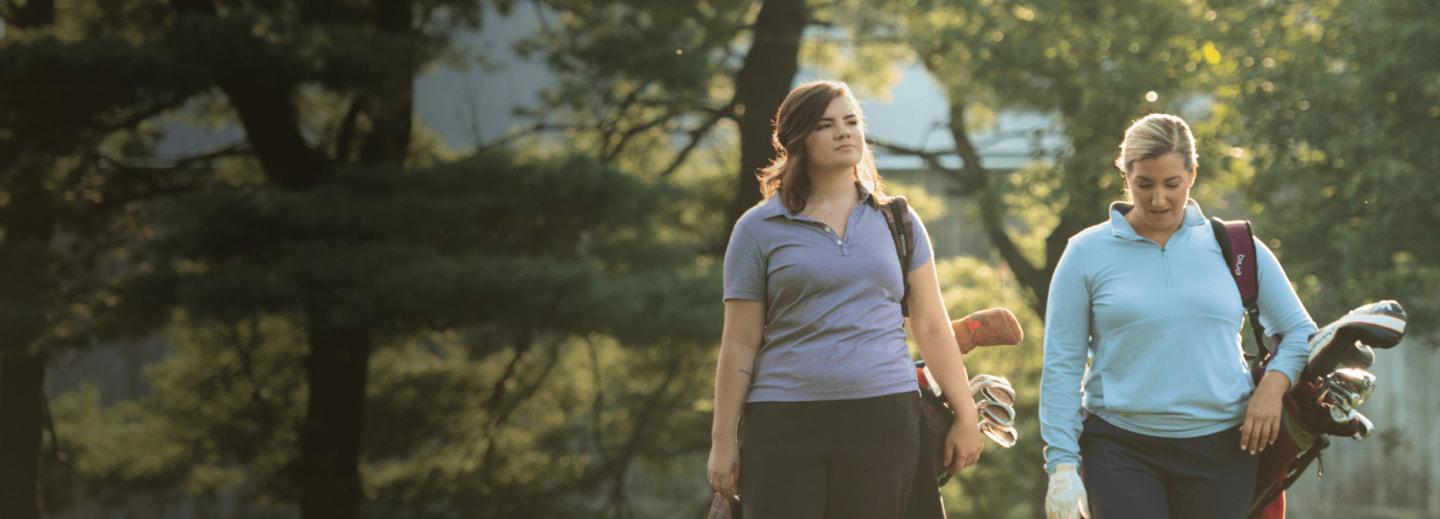
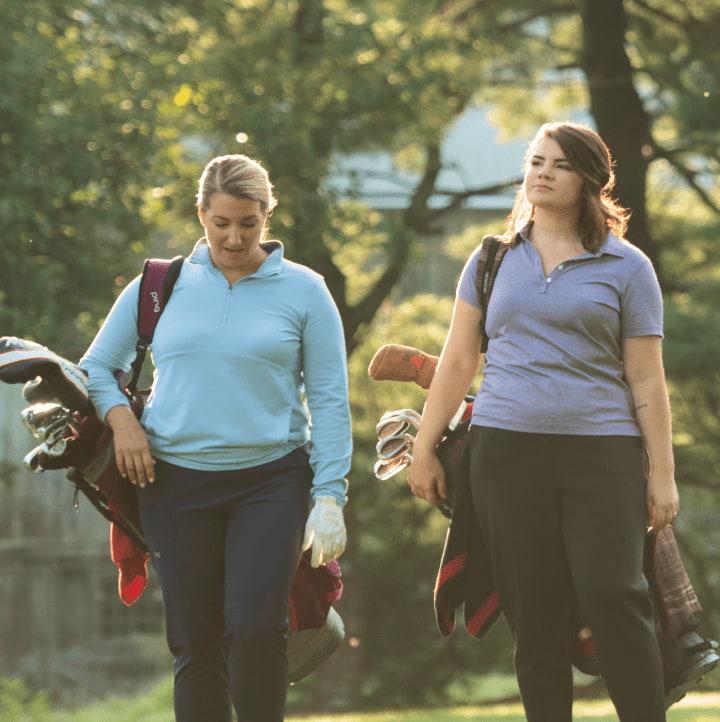
rapidly progressing ADPKD, I would
strongly encourage them to begin seeing
a nephrologist, and not to wait.”
Talk to your nephrologist to see if JYNARQUE® (tolvaptan) is right for you.
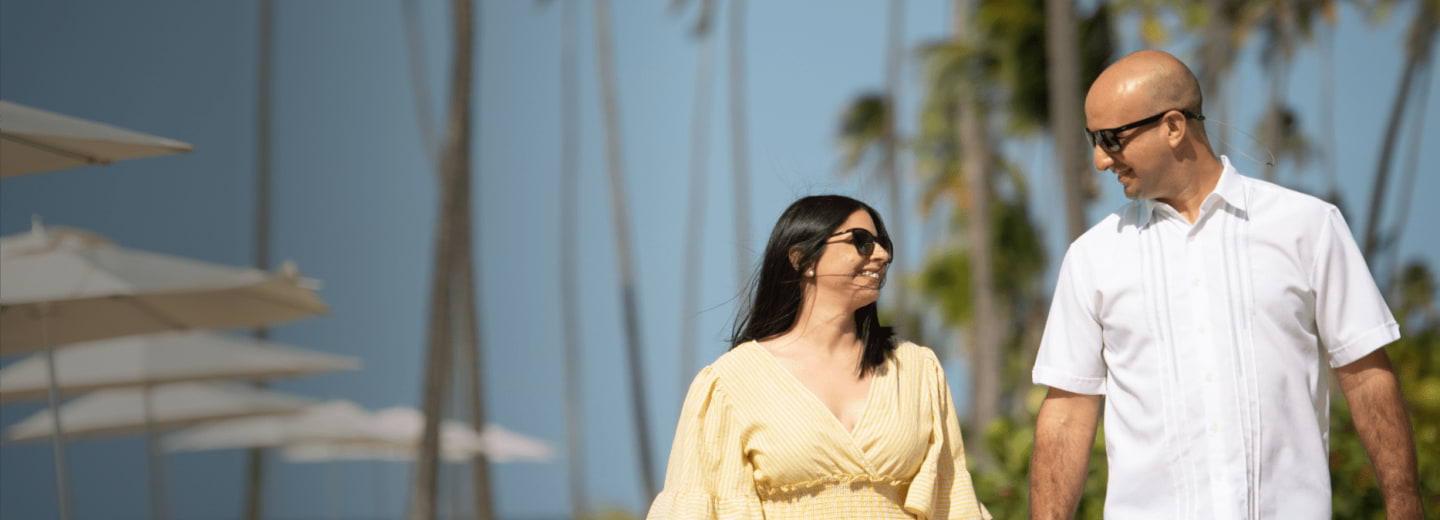
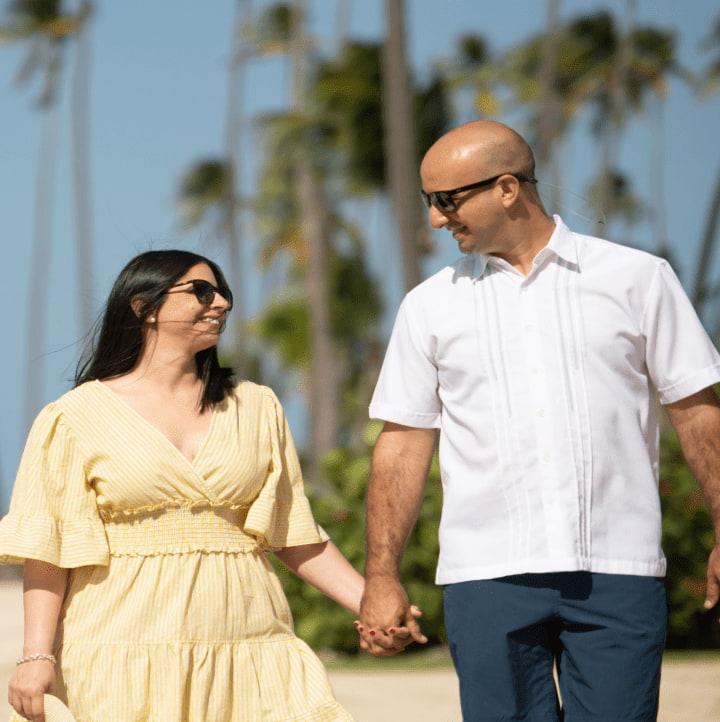
Talk to your nephrologist to see if JYNARQUE® (tolvaptan) is right for you.


rapidly progressing ADPKD, I would
strongly encourage them to begin seeing
a nephrologist, and not to wait.”
Talk to your nephrologist to see if JYNARQUE® (tolvaptan) is right for you.


Talk to your nephrologist to see if JYNARQUE® (tolvaptan) is right for you.
Talk to your nephrologist to see if JYNARQUE® (tolvaptan) is right for you.
Patients were compensated for their time. Patient images reflect their health status at the time the photos and videos were taken.
Toggle to view articles or videos related to your search


Bill is living with rapidly progressing autosomal dominant polycystic kidney disease, or ADPKD, and taking JYNARQUE.
Get to know Bill.
Nineteen years old and newly diagnosed with autosomal dominant polycystic kidney disease (ADPKD), Bill feared his life was halfway over. The family members he’d known with ADPKD all died in their 40s and 50s, and in Bill’s mind, there was nothing he could do to change that outcome. So, for the next 15 years, Bill did the only thing he thought he could—he went about his life. It wasn’t until Bill’s first encounter with the ADPKD community that he realized: I can do something about my ADPKD. Today, he encourages others living with ADPKD to take action, because—now more than ever—there is hope.
Please remember that none of the information discussed in this article should replace the conversations with your healthcare provider. Bill is sharing his own thoughts and experiences, so please keep that in mind as your thoughts and experiences may be different.
Talk to your doctor to see if JYNARQUE is right for you.
When did you first become aware of ADPKD in your family?
Bill: I grew up knowing that my grandfather had dropped dead at 44, that his father had died at 45, and that his father’s father had died at 43—all of unexplained heart attacks. A few years after my grandfather died, his older sister Marie slipped and broke her leg. In the hospital, the doctors told her stunned children that Marie was going to die. Her kidneys were shot. Marie’s renal failure was the first hint of what might be causing all of those early deaths.
When my dad was in his mid-twenties, he found blood in his urine after a pickup basketball game. An X-ray showed cysts all over his kidneys. Now he knew what had almost certainly killed his father, his aunt, and many other family members.
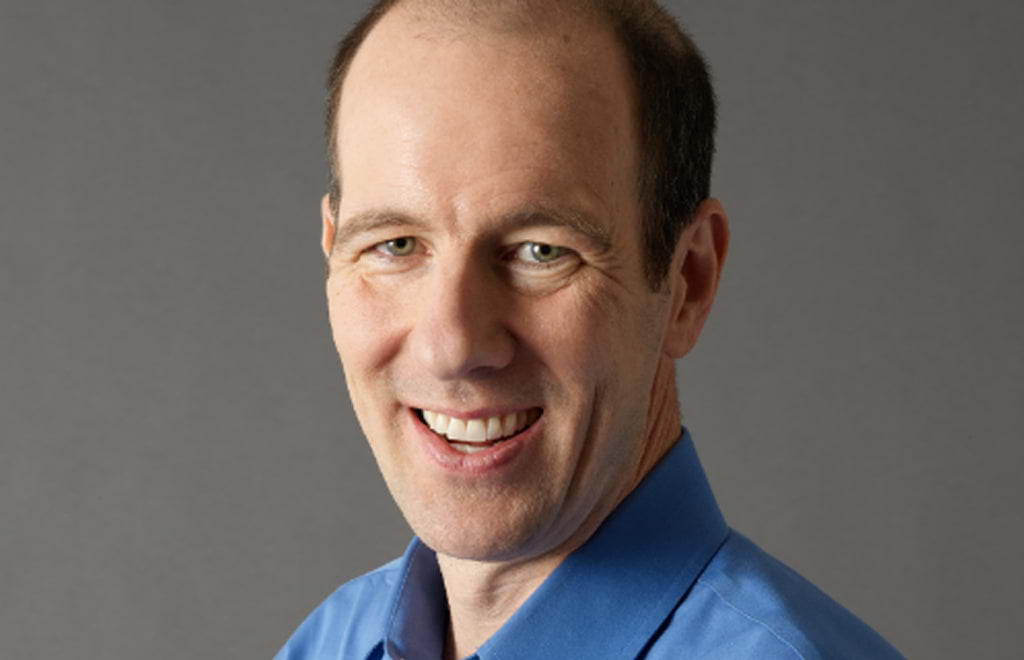
Was there a moment when you realized you might inherit the disease?
Bill: When I was 14, my dad told me that there was a chance I would inherit his condition. I don’t think he knew what it was called. He told me that the chance was only one in four, but I should check someday. He was wrong about the odds, but that was the information he was given. As a freshman in college, I needed a physical in order to row crew. I asked the college clinic doctor to check to see if I may have the cystic disease my dad had mentioned. I don’t remember worrying about it. My dad said it was just a one-in-four chance, so I figured the odds were on my side. When I went back to the doctor a week later, though, he said, “Well…you’ve got it.”
What thoughts and emotions were going through your mind when you received this diagnosis?
Bill: I went numb. I walked back to my dorm room, locked the door. I didn’t call any friends or family members. I didn’t want to tell anyone. I stood looking out the window, watching people walking by. I wanted to be alone because I felt alone. All I could think was, These people walking by can expect a full life. Mine may be half over.
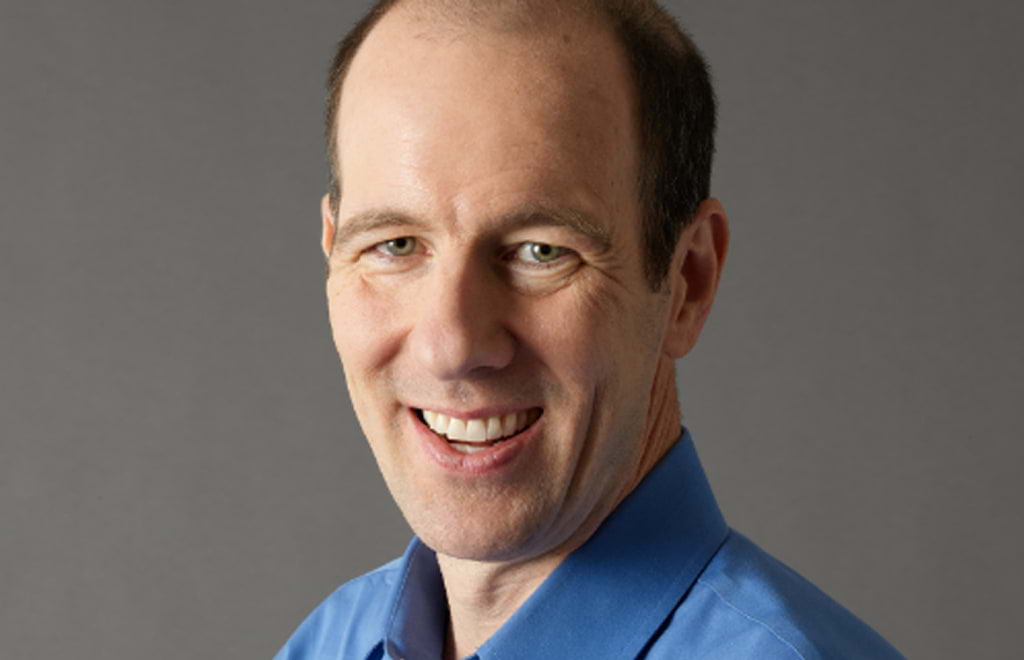
It must’ve been difficult coming to terms with a progressive diagnosis, especially at a young age. How would you describe your outlook on living with ADPKD?
Bill: I couldn’t help but wonder if it made sense to pursue a long-term career or project, because I might not live to complete it. I couldn’t see a way to be happy again. Get married? Have children? I thought, “I don’t want to die early on a wife or any kids we may have, and certainly don’t want to leave fatherless kids to face the bleak, short future I’m facing.” I felt a sense of futility—of uselessness. Why bother? The doctors I spoke to knew very little about managing ADPKD, but they told me to stay in touch. Something might happen in the years ahead. At that point, it never occurred to me that I might help something happen.
What changed your perspective on managing ADPKD?
Bill: In 2002, I went to my first awareness and fundraising walk sponsored by a PKD support and advocacy organization. There I met, for the first time, people outside my family who also had ADPKD. I was speechless. ADPKD had felt like a dark cloud hanging over my family alone. All at once, I realized that there were events like this one, featuring families like mine, all over the country. I got involved in fundraising and awareness efforts. I wore a kidney costume to a black-tie gala.
The following year, my cousin Mike died suddenly of ADPKD complications. He was just 35—my age. Mike’s death shocked me. It scared and enraged me. I vowed to do whatever I could to help support research for this disease. I’m not a scientist or a celebrity. I’m not rich. Nonetheless—however small the effect of my efforts might be—I felt that I had to make them. Sitting still meant waiting for an early death.
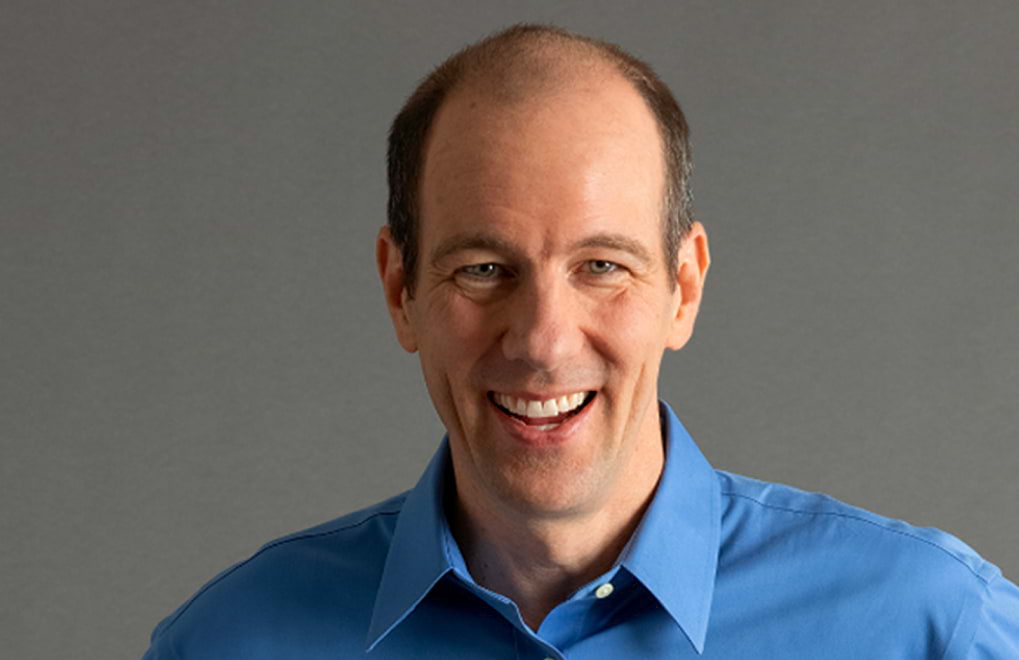
How did you take action? What steps did you take to support ADPKD research?
Bill: I’d heard about a promising experimental drug called tolvaptan and had seen photos of the kidneys of mice who’d been treated with it. I liked what I saw, so I started following tolvaptan’s development. Some years after Mike’s passing, I joined 19 other people to participate in one of the first human clinical trials of tolvaptan. We believed we were doing something important: helping with the development of a treatment option for ADPKD. We believed that we were opening the door to further research that could help other families like ours. Now that the FDA has approved tolvaptan as JYNARQUE, my nephrologist has prescribed JYNARQUE to treat my rapidly progressing ADPKD. JYNARQUE can cause serious and potentially fatal liver damage, so to be certain that the medicine is not affecting my liver enzymes, I have my blood drawn on a regular basis as part of the Risk Evaluation and Mitigation Strategy, or REMS, program for JYNARQUE.
JYNARQUE makes me crave water in a way I never used to do. I keep a glass of it near me at all times and am aware of nearby water sources when I travel. I’m also more aware of bathroom locations than I used to be, because all that water has to go somewhere. Remember, this is my experience, and other people’s experiences may be different.
What’s your outlook on ADPKD today, and how is it different from when you were first diagnosed?
Bill: Today I’m lucky to be very happily married. My wife and I have three lovely daughters. They know that their dad has a kidney disease called ADPKD. They’ve heard that it runs in the family. They know it has killed some relatives they never met, including my cousin when he was quite young. But they also see me smiling in that kidney costume each year when they join me at walks for PKD. Although they don’t know it yet, I’m walking in large part for them. I’m walking for Mike, too. And I’m walking for others living with ADPKD. I want to communicate to as many people as possible that we have a way of addressing this disease. So don’t wait! Don’t procrastinate. This is a better time for us than we’ve ever had before.
Patients were compensated for their time. Patient images reflect their health status at the time the photos and videos were taken.
Receive helpful texts and
emails with information to support conversations with your nephrologist
and healthcare team.
Speak one-on-one with
a Peer Mentor living with
rapidly progressing ADPKD
and taking JYNARQUE.
Sign up for an ADPKD
Peer Conversations webinar
to talk with people living
with ADPKD.


Deidre is living with rapidly progressing autosomal dominant polycystic kidney disease, or ADPKD, and taking JYNARQUE.
Get to know Deidre.
After an abdominal ultrasound in college, Deidre suddenly learned that not only did she have autosomal dominant polycystic kidney disease (ADPKD)—she had a family history of the condition, too. Without much information on ADPKD, Deidre did not take it seriously until her endocrinologist and then nephrologist stepped in and suggested she start treatment. Afterward, Deidre had the chance to meet others with ADPKD and learned what facing the condition could mean. Now she takes charge of her own health and wants others with ADPKD to know there is a supportive community for them out there.
Please remember that none of the information discussed in this article should replace the conversations with your healthcare provider. Deidre is sharing her own thoughts and experiences, so please keep that in mind as your thoughts and experiences may be different.
Talk to your doctor to see if JYNARQUE is right for you.
It sounds like your ADPKD diagnosis came as something of a surprise. What was your moment of diagnosis like?
Deidre: It was! When I was in college, I struggled with several inexplicable recurrent health issues. The healthcare office at my college sent me for an abdominal ultrasound and that’s when they found them: my big, cyst-covered kidneys. I was told in a phone call that I had something called ADPKD and I would need to see a nephrologist. I didn’t know what that meant. I told my dad and his response was, “Your mother has that.”
My parents divorced when I was young, and I was never close to my mother. Her side of the family didn’t really exist in my world, so I didn’t know about the several relatives that had ADPKD. In my world, it was just me.
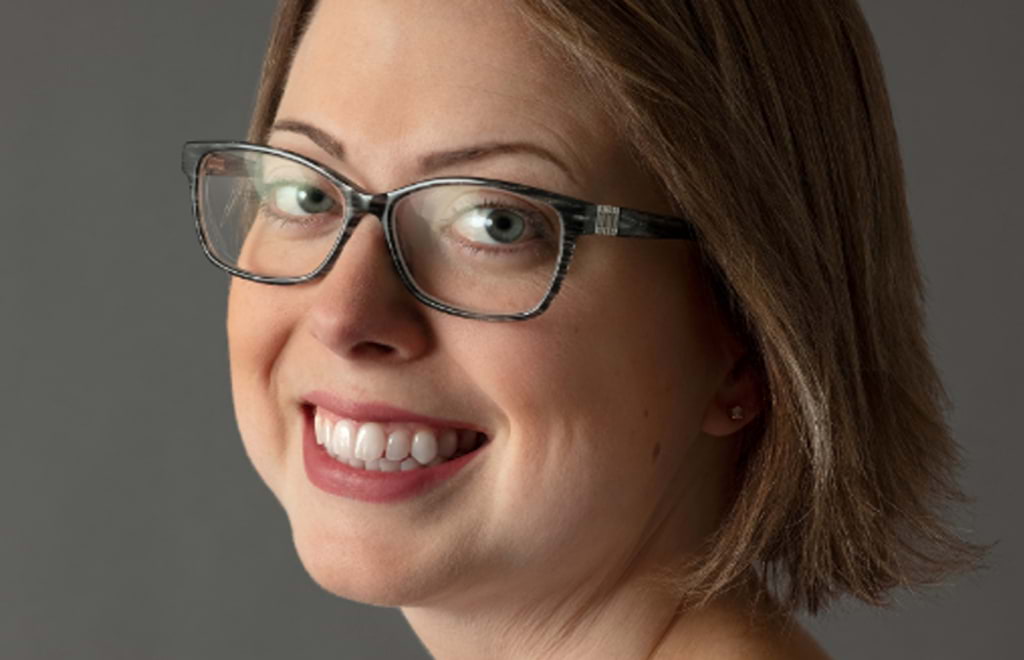
What was your initial understanding of ADPKD?
Deidre: When I met with a nephrologist, they explained what ADPKD was and sent me home with a small book. It was not in-depth. My takeaway was that all they could do was monitor the disease and eventually I would go on dialysis.
When I was switched to a different nephrologist in the practice, it only further reinforced that unconcerned feeling. That doctor was so nonchalant that it made it even easier for me not to worry. Basically, “keep an eye on your blood work and we’ll deal with this when things get bad” was the message I received.
Without much guidance on ADPKD, how did you face it?
Deidre: For a long time, I didn’t. I was eventually dropped from the nephrology practice for too many rescheduled appointments. I even thought I didn’t necessarily need a nephrologist, so I just saw my primary care provider to check my levels. I didn’t really talk about my ADPKD unless I was filling out medical history forms. If there wasn’t anything I could do about it, why even think about it? It was a low priority.
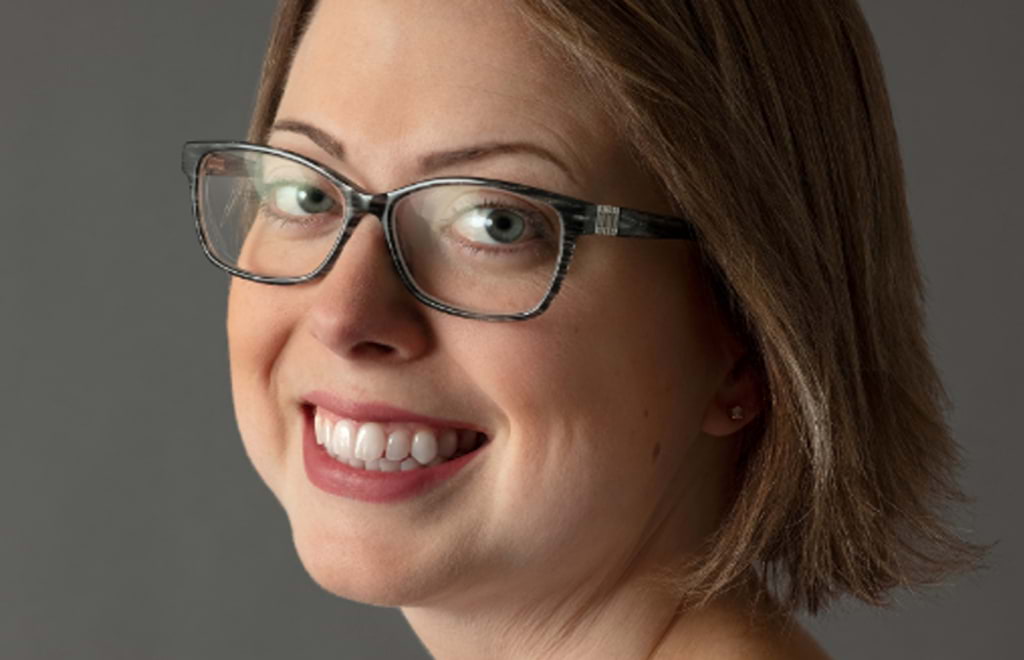
Were there any steps you eventually took to manage your ADPKD?
Deidre: Basically, my endocrinologist got me to a nephrologist because she knew I wasn’t doing anything about my ADPKD. That nephrologist introduced me to JYNARQUE at my very first appointment after reviewing my medical history and previous lab work. He felt that I would be a good candidate, as he explained that at that point, I had rapidly progressing ADPKD. Even though the treatment was new to the market, he was enthusiastic about it, as he had a patient who had success as part of the clinical trials.
Was there anything about JYNARQUE that appealed to you?
Deidre: At first, I was hesitant. Sure, JYNARQUE had been shown to slow kidney function decline, but with the possible side effects, I might have to urinate all the time. My doctor had also told me that because JYNARQUE can cause serious and potentially fatal liver problems, I would need regular blood work to monitor my liver function. He enrolled me in the JYNARQUE Risk Evaluation and Mitigation Strategy, or REMS, program to help me keep on track with my blood work. But still I wondered, Did I really need this? Were the side effects worth it?
As I was researching JYNARQUE, I also wondered more about ADPKD. I researched it online and almost fell over. I knew I needed to do something. Together with my doctor, I decided to start on JYNARQUE because it was the first approved treatment for adults at risk of rapidly progressing ADPKD. It was definitely a change for me. The drive to drink water was incredible and I was using the bathroom a lot, but soon I felt that my body adjusted. It’s shocking how much urine my bladder can hold now! I do have to plan a little more and make sure I have a water bottle at all times. I always know where the fill stations and bathrooms are. I even have a device to help me urinate outside easily because there are not always bathrooms available! Of course, this is my experience, and the experiences of others may be different.
The biggest thing for me is having a medication—something I can take for my rapidly progressing ADPKD now, rather than just keeping an eye on it.
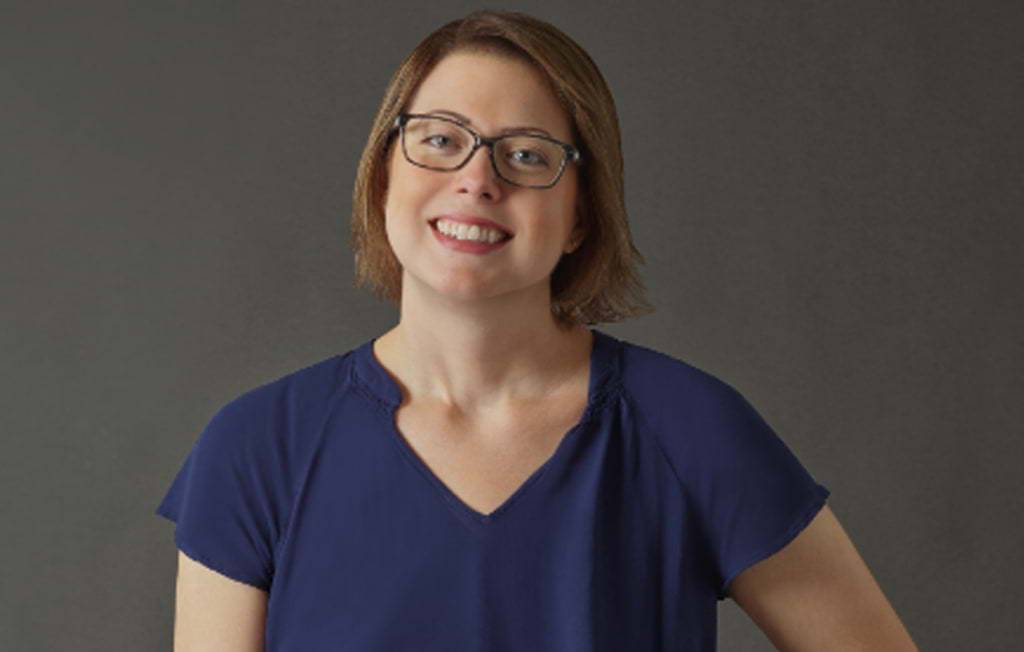
Did anything else happen that changed your outlook on ADPKD?
Deidre: Several months after starting JYNARQUE, I had the opportunity to attend meetings where I met other people with ADPKD, which I had never done before. I heard the stories of some of their family members who had complications from dialysis, failed transplants, or died in their 40s or 50s. It was terrifying, but I also realized those stories were of the past. I was lucky. For the first time, I found strength and courage. I was taking the necessary steps to manage my condition. I was actually doing something.
How are you proactive about your ADPKD now?
Deidre: I make sure to drink lots of water and follow a plant-based diet. I subscribe to ADPKD newsletters and joined a couple of social media groups for the disease. The support groups are like a lifeline. It makes a world of difference to have support from someone who knows what you’re going through. I find I’ve also become more active in the groups and I’m excited to support others. I hope that I can open that door for someone else and let the ADPKD community in for them as well.
Patients were compensated for their time. Patient images reflect their health status at the time the photos and videos were taken.
Receive helpful texts and
emails with information to support conversations with your nephrologist
and healthcare team.
Speak one-on-one with
a Peer Mentor living with
rapidly progressing ADPKD
and taking JYNARQUE.
Sign up for an ADPKD
Peer Conversations webinar
to talk with people living
with ADPKD.


Anthony is living with rapidly progressing autosomal dominant polycystic kidney disease, or ADPKD, and taking JYNARQUE.
Get to know Anthony.
Anthony grew up in what he describes as the quintessential middle-class household. He played ball with his dad, ate family dinners at the table, danced around the house with his siblings, and always said his prayers before bed. But behind closed doors, his family was quietly dealing with autosomal dominant polycystic kidney disease (ADPKD). Anthony’s father had been diagnosed with the condition, and later, Anthony would be too. After years of loss and learning, he decided to take control of his health by eating right and staying active. He believes in the power to transform your circumstances through faith and optimism.
Please remember that none of the information discussed in this article should replace conversations with your healthcare provider. Anthony is sharing his own thoughts and experiences, so please keep in mind that your thoughts and experiences may be different.
Talk to your doctor to see if JYNARQUE is right for you.
How old were you when you were diagnosed, and what was that experience like for you?
Anthony: I was in the sixth grade when my pediatrician diagnosed me with ADPKD. My family had a history of the disease—something I hadn’t known at the time. We reviewed my family history and my pediatrician ordered a few tests to confirm the diagnosis. I remember that when he told us, my mom cried, but my father sat stoically in the seat beside her.
That’s quite young for a diagnosis of any kind. Did things change for you after that?
Anthony: Not much changed. I was still just a little kid with big dreams. I was mostly worried about other things, like making friends at school and getting good grades. There was also a lot of secrecy in our family surrounding the illness. It wasn’t really something we talked about. My grandmother died of ADPKD-related complications, which I didn’t know back then. I remember seeing her when she looked so sick—I was in high school by that point, but still didn’t know much about the effect ADPKD had on our family.
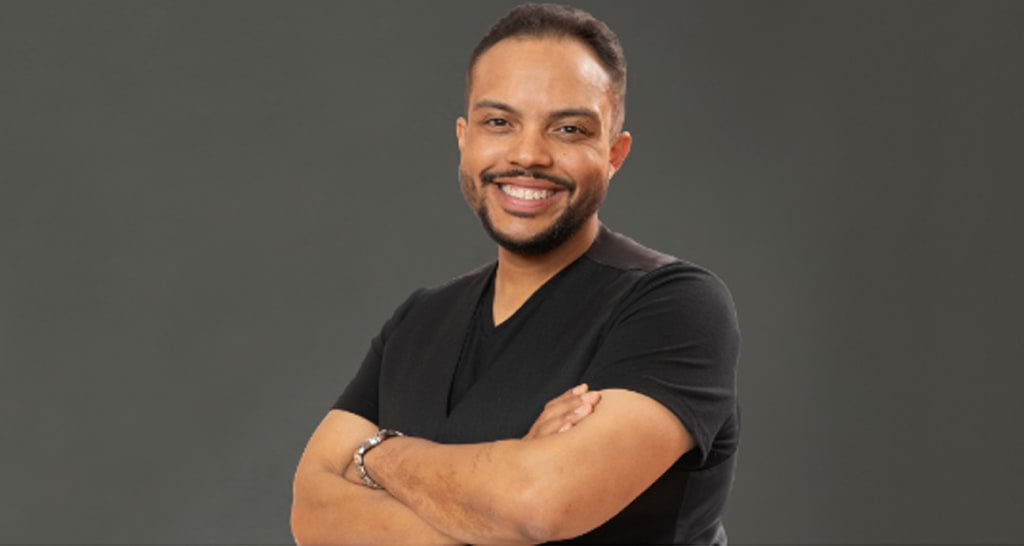
Did your family ever open up to you about ADPKD?
Anthony: Yes, but it took a while. I found out one day when my father passed out at work. My sister and I rushed to the hospital, where the doctors explained the situation. That was the first time I realized that he had ADPKD too. We also learned that he needed a transplant. Luckily, my uncle donated a kidney to him. To say it was a gift is an understatement. My uncle made the impossible happen—he gave us more time with our dad.
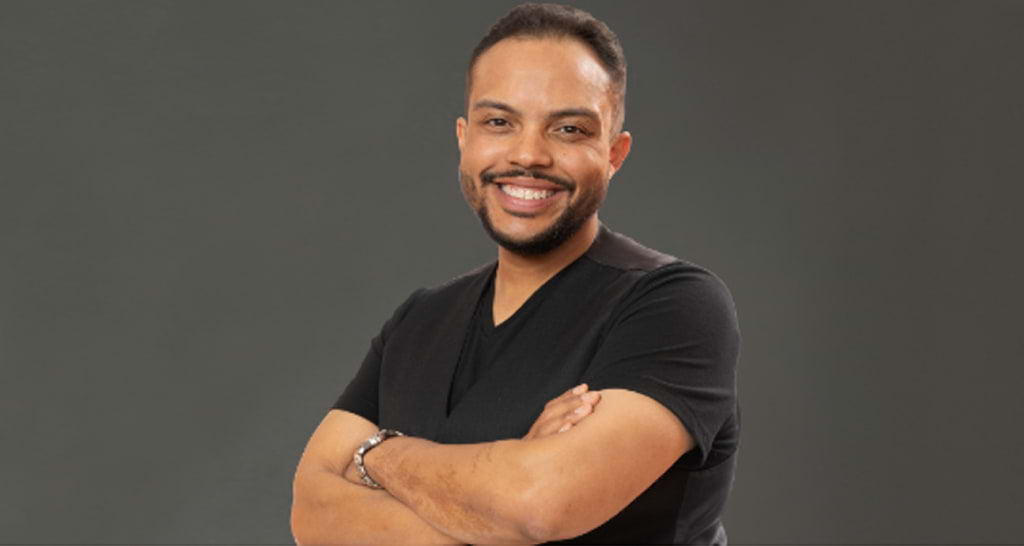
That sounds like a lot to take in all at once. Can you tell me a little bit about what that discovery meant for you moving forward?
Anthony: Well, when I went to college, I didn’t think much about kidney disease. That is, until I started cramming for exams, staying up all night, eating poorly—doing all the things college kids do. I was also really homesick and felt down a lot, which led to me gaining weight. Now, knowing what I know, I would’ve hiked more, eaten healthier meals, spaced out my class schedule, gotten more sleep. That’s something I want to make sure other young people living with ADPKD keep in mind—your body needs you to take control of your health sooner rather than later. The sooner, the better.
It can be so easy to lose sight of your health when you’re focused on school. What were things like after college?
Anthony: I graduated in 2006 and began my career as a nationally touring musician. It was definitely a crazy chapter of my life, performing at concerts so often. Things were hectic—it’s easy to forget to focus on your health. Then things became even more difficult when my father died unexpectedly during a transplant surgery. He passed the week before my 27th birthday.
I’m so sorry for your loss—that must’ve been so difficult to live through. I appreciate you sharing that. Is it strange to navigate ADPKD without him?
Anthony: His death woke me up. It hit me hard—made me realize that it was time for a big change. At that point, I weighed 290 pounds, and being overweight isn’t helpful when you have kidney disease. So I started doing yoga and ultimate frisbee, biking, and walking. I did everything I could to stay active and eat better. I tried to let go of things that were stressing me out emotionally and decided to spend my time with people who were positive. I also started taking JYNARQUE a little later.
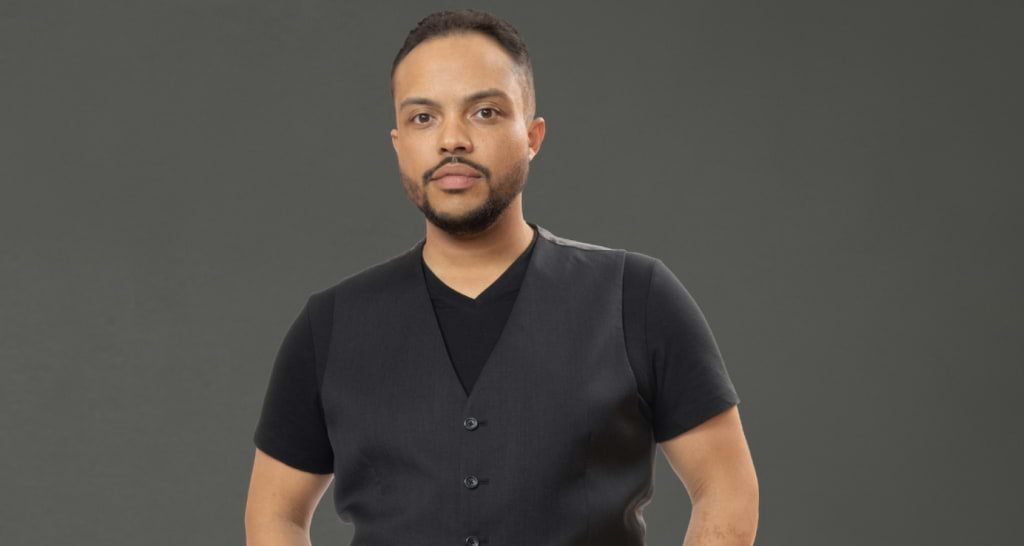
What has your experience with JYNARQUE been like?
Anthony: When I first heard about JYNARQUE, my sister, who also has ADPKD, said that it was the first treatment of its kind, and that that’s a good thing, which made me feel hopeful. But at the time, my nephrologist had just told me that my kidneys would fail by age 60, so there was a lot going on in my mind. My dad died at age 59, so it was hard not to compare things.
But I knew I had to be strong. I started taking JYNARQUE as soon as it was available to me in 2018. JYNARQUE can cause serious liver problems that can lead to the need for a transplant or can lead to death. My doctor had also told me that because JYNARQUE can cause serious and potentially fatal liver problems, I would need regular blood work to monitor my liver function. He enrolled me in the JYNARQUE Risk Evaluation and Mitigation Strategy, or REMS, program, to help me stay on track with my blood work.
I’ve had a few side effects while taking JYNARQUE, most notably that I have to urinate very often. As a father of a newborn, that actually hasn’t been so bad because I’m awake at night to check on the baby.
Congratulations on becoming a father! How does it feel to take on that new role?
Anthony: I met my wife through a church group a little while back and she’s the love of my life. She’s a doctor, so when I told her I had ADPKD, she knew exactly what I was talking about, which was nice. My wife and I took the right steps to minimize the risk of passing ADPKD on to our children, too. We decided on in vitro fertilization so we wouldn’t have to worry.
I think my relationship with my father is a good example for me on my journey of fatherhood, because he and I had the same drive and really loved one another. I think each generation of my family has gotten better and better at communicating and holding one another accountable, which I intend to do with my children.
Do you have any message or thoughts about living with ADPKD or taking JYNARQUE that you’d like to share?
Anthony: I have chosen to be optimistic about my condition, and I’ve also chosen to take action. Eating healthy, staying fit, and just taking care of yourself is so important. I hope that anyone with ADPKD can improve their circumstances—but especially those who are younger. They really have a chance to make a difference for themselves and for their families. I know firsthand! Despite everything I’ve been through with this disease, I’d say that I’m still the same little kid with big dreams. But now more than ever, I’m optimistic that I’ll be able to keep chasing them.
Patients were compensated for their time. Patient images reflect their health status at the time the photos and videos were taken.
Receive helpful texts and
emails with information to support conversations with your nephrologist
and healthcare team.
Speak one-on-one with
a Peer Mentor living with
rapidly progressing ADPKD
and taking JYNARQUE.
Sign up for an ADPKD
Peer Conversations webinar
to talk with people living
with ADPKD.


Ahead
of ADPKD
Cari is living with rapidly progressing autosomal dominant polycystic kidney disease, or ADPKD, and taking JYNARQUE.
Get to know Cari.
At the age of 10, diagnostic imaging confirmed Cari’s parents’ fears: she, like her father, had autosomal dominant polycystic kidney disease (ADPKD). As little could be done for a young patient with no symptoms, her parents made the difficult choice to wait to share the diagnosis with Cari until she was an adult and better able to process the information. Growing up, Cari watched her father deal with his own ADPKD symptoms, dialysis, and treatment, so the significance of an ADPKD diagnosis was not lost on her. Cari knows her parents’ hope was to protect her, but as an adult, she is now very open about ADPKD, advocates for others with the condition, and spreads awareness in hopes of helping everyone in the ADPKD community.
Please remember that none of the information discussed in this article should replace the conversations with your healthcare provider. Cari is sharing her own thoughts and experiences, so please keep that in mind as your thoughts and experiences may be different.
Talk to your doctor to see if JYNARQUE is right for you.
What was it like to learn not only that you had ADPKD, but that you’d been diagnosed with it for years?
Cari: It’s a lot to process, even when you have no symptoms. I didn’t know then, but my daily life wouldn’t be affected by ADPKD symptoms for at least 10 more years. At that time, not disclosing information on any chronic diseases you might have could preclude you from employment or private health or life insurance. Thankfully, there is now legislation that protects against discrimination of pre-existing conditions.
However, there’s something frightening that my generation of patients has in common: we are not strangers to ADPKD. Many of us watched our parents deal with a brutal disease daily, where the only strategy was to wait until your kidneys failed, then start dialysis or be fortunate enough to get a transplant. Receiving a diagnosis of an unknown illness is scary, but the fear that comes with a diagnosis of something that’s already impacted your family life is something else entirely.
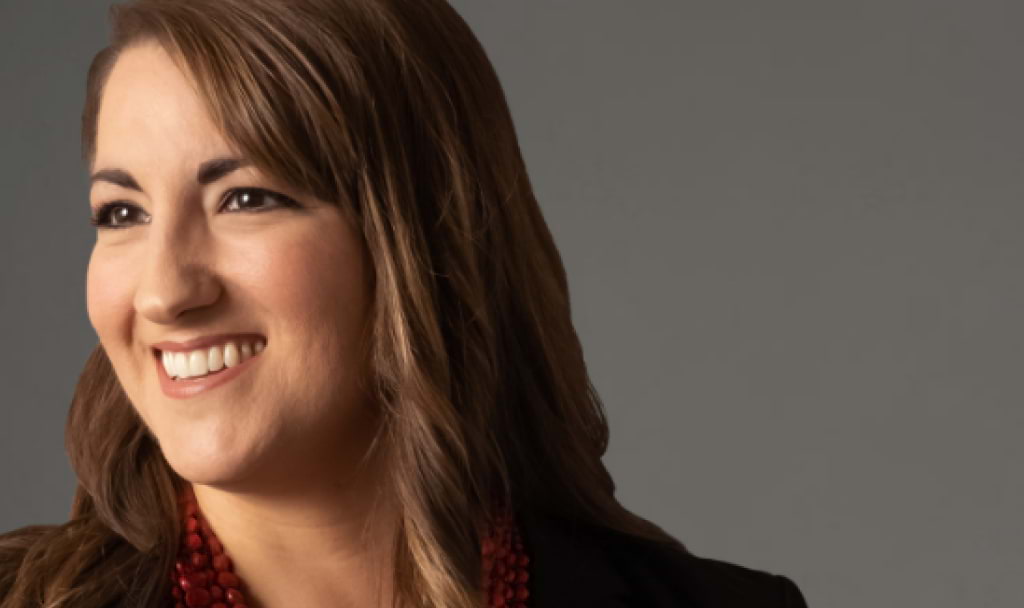
What did living with ADPKD look like for your dad? It sounds like he went through a lot.
Cari: It’s hard to remember a time when ADPKD wasn’t a big part of my day-to-day life. When I was eight years old, my dad started receiving hemodialysis at home—something unheard of in the mid-1980s—and it allowed him to keep working full time to provide for our family. Dialysis is hard on the body, though. Even when we were young, we knew Dad needed a lot of rest, and there were days where he was very sick. He was fortunate to receive a kidney that was a near-perfect match just two years after beginning dialysis. While that freed him from the hemodialysis machine, the numerous medications caused issues of their own, including those designed to prevent transplant rejection. Over the next 30 years, he had sepsis five times and three different types of cancer, and we were acutely aware of how tenuous his health was.
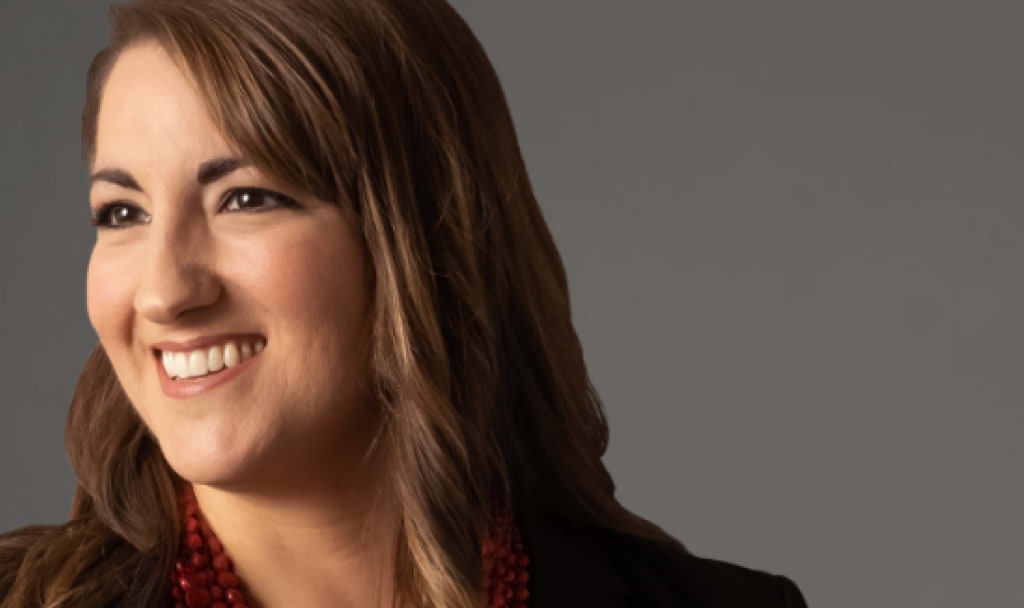
I’m sure seeing everything your parents went through affected your own approach to ADPKD.
Cari: Through all of this, my dad kept a positive attitude about the many health challenges he faced. He was respected by his doctors for how well he understood his conditions and medications. If he felt a medication wasn’t working for him, he’d speak up. He wasn’t afraid to ask questions, even if it was about a course of action they were recommending. Through his example, I learned the value of being my own best advocate and playing an active role in my care.
Was there a moment that the importance of managing your own ADPKD hit home for you?
Cari: Personally, becoming a mom brought my ADPKD into focus. I’ve had three complicated and high-risk pregnancies, but other than that, I’m fortunate that I’ve lived relatively symptom-free until the last 10 years or so. And because ADPKD can impact families through generations, I knew something of the guilt my dad experienced. I wanted to channel all of those emotions into something positive and set the best example possible for my girls by taking charge of my health, being open to research, and sharing my story with others.
When did you realize you needed to move beyond managing ADPKD on your own?
Cari: Like many ADPKD patients, the first symptom I needed to treat was my high blood pressure. It’s scary because this and other kidney diseases can move silently in your body. I was 30 before I realized that silent progression was happening to me, and I knew from my upbringing that I needed to be more proactive than reactive. I started making healthier life choices right away in conjunction with finding the right medication to control my blood pressure, and I was amazed at how quickly I started to feel better. A few years later when planning my third pregnancy, I researched alternative ways to slow the progression of ADPKD online and discovered a clinical trial for an investigational drug called tolvaptan, later approved by the FDA to treat adults with rapidly progressing ADPKD as JYNARQUE. I began taking the trial medication in January 2016.
In 2018, I transitioned from the trial to the commercially available medication. I applied for the Otsuka Patient Support Program, which helped tremendously. I also learned that the Patient Support Program can, if eligible, cover the blood work required by the JYNARQUE Risk Evaluation and Mitigation Strategy, or REMS, program that I need to monitor my liver function. JYNARQUE can cause serious and potentially fatal liver problems, so I stick to my scheduled checkups to ensure my liver is working properly.
Being on JYNARQUE, I drink much more water than I ever did before, but over time, I’ve grown accustomed to it and found that the search for new and flavorful ways to consume water and keep track of my intake is now part of my daily routine. Of course, this is my experience, and everyone is different.
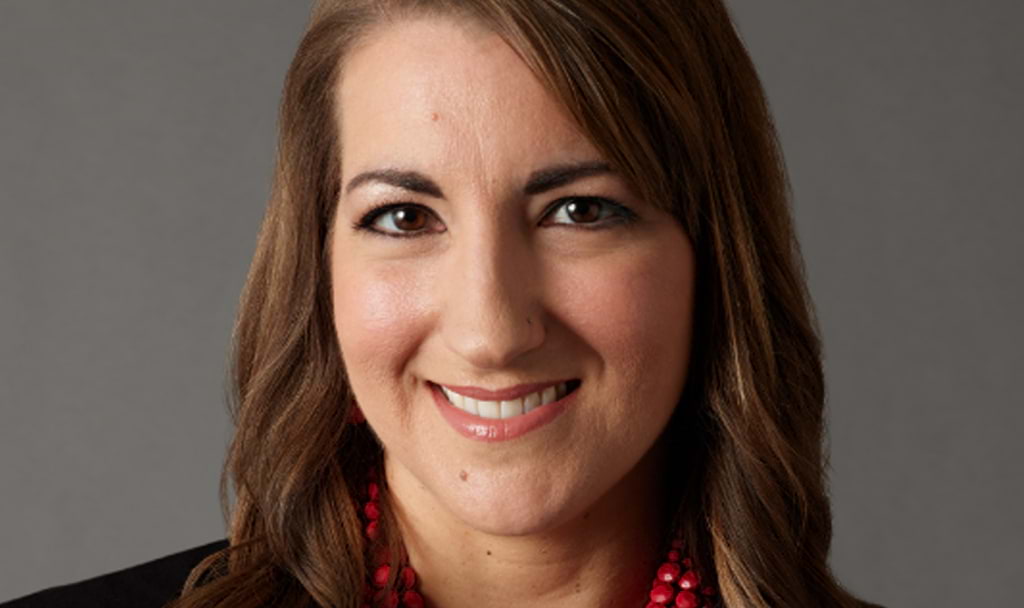
You are fairly active in the ADPKD community, correct?
Cari: Through my research on potential treatments and my quest to make some sense out of having a chronic illness, I’ve been blessed to find initiatives ranging from grassroots political advocacy to patient advisory boards focused on bringing the patient community together via technology. In addition to feeling like I’m using my disease as a positive platform, I’ve met some amazing people who truly understand me because they face the same health challenges.
Why is raising awareness of ADPKD so important to you?
Cari: Part of being open about my health journey is honoring my dad’s memory and legacy. In one generation, we’ve moved from guarding information about our health out of fear of discrimination to openly sharing our diagnosis in hope that a fellow patient will identify with us and find encouragement. I find both relief and purpose in being open about living with ADPKD and all that goes along with it. The people in my life who know about my condition understand and support me! My hope is that through my commitment to awareness of chronic kidney diseases, others will take active roles in their health journeys through early detection of ADPKD, healthy living, and becoming a strong voice for themselves and others.
Patients were compensated for their time. Patient images reflect their health status at the time the photos and videos were taken.
Receive helpful texts and
emails with information to support conversations with your nephrologist
and healthcare team.
Speak one-on-one with
a Peer Mentor living with
rapidly progressing ADPKD
and taking JYNARQUE.
Sign up for an ADPKD
Peer Conversations webinar
to talk with people living
with ADPKD.


Diagnosis to Treatment
Nancy is living with rapidly progressing autosomal dominant polycystic kidney disease, or ADPKD, and taking JYNARQUE.
Get to know Nancy.
Nancy had a plan. After her sixth and youngest child left for college, she’d return to college and become a hospital chaplain. She’d always loved her career in nursing but felt she had so much more to learn and do. Then a mysterious pain in Nancy’s back led to a shocking diagnosis of autosomal dominant polycystic kidney disease (ADPKD). She felt her hopes and plans dissolving and, instead of going back to college, she started getting her affairs in order. But with support from her children and healthcare team, Nancy figured out new plans for her life with ADPKD—an approach filled with hope and courage.
Please remember that none of the information discussed in this article should replace the conversations with your healthcare provider. Nancy is sharing her own thoughts and experiences, so please keep that in mind as your thoughts and experiences may be different.
Talk to your doctor to see if JYNARQUE is right for you.
When you first started experiencing back pain, what did you think was the cause?
Nancy: I didn’t think much of it at first. It was a dull, nagging pain that seemed to bother me most in the morning. As my mattress was more than 20 years old, I was sure that was the cause. Then one afternoon, the dull pain became a severe, throbbing pain. A week after that, I found it difficult to even get out of bed, so my nurse practitioner recommended an ultrasound to see what was going on. When the scans came back, she gently told me that the radiologist had seen multiple cysts on my kidneys and they suspected ADPKD.
You were shocked by the diagnosis. What did you know of ADPKD at the time?
Nancy: What little I knew about ADPKD came from being a nurse. It was a hereditary disease that typically causes cysts to form on each kidney and eventually leads to kidney failure, then transplant or dialysis. This was not part of my plan. I remembered that my older sister had kidney issues when she was a teenager and had died when she was just 60 years old.
How did you move forward after your ADPKD diagnosis?
Nancy: I met with a nephrologist and, still in shock, searched for words, comments, or questions. I had nothing. It didn’t help when my nephrologist said I’d probably be in kidney failure in five years—10 at the most—and the best thing I could do at this point was control my blood pressure. This was the absolute lowest part of my journey with ADPKD. In that one visit, my hopes and plans dissolved away.
After my appointment, I did some online research. The results were not promising. If there was no treatment for this condition, I wasn’t going to dwell on it. Nearly all of my kids were in college, and I was a nurse supervisor working 60-hour weeks. I didn’t have time for this. I put ADPKD on the back burner. I told myself that if there was no treatment, I had no reason to think about it. But I did have reasons—six of them.
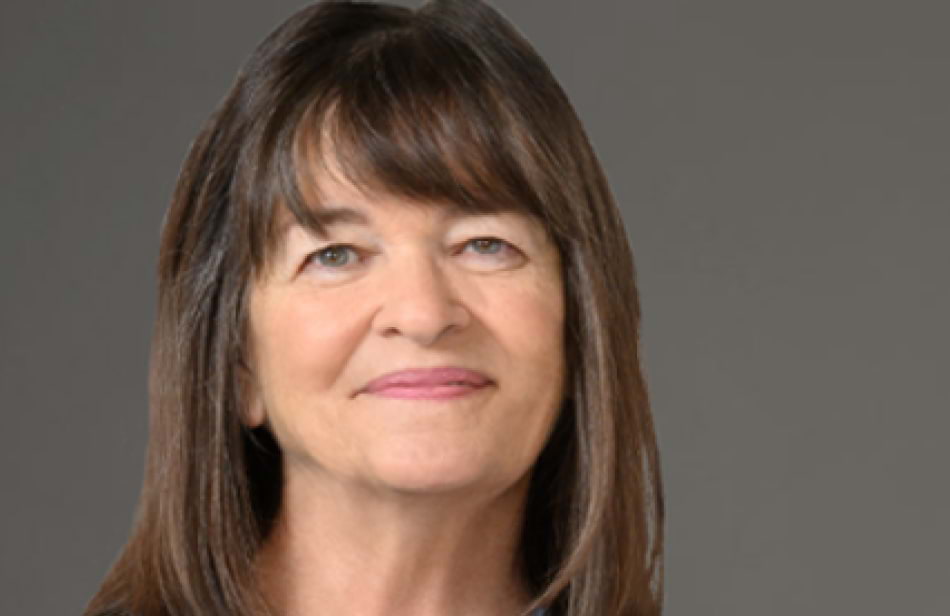
It must’ve been difficult telling your children about your ADPKD diagnosis. How did you approach that conversation?
Nancy: Though my own health concerns were upsetting, the guilt I felt about what may happen to their health was a burden. I had to remind myself that I didn’t cause this and there was nothing I could have done to prevent it. I had brought six amazing people into this world. They were launching their careers, marrying, and having their own families. With ADPKD’s hereditary impact, my diagnosis could potentially become their diagnosis. This was one of the most difficult conversations I’ve ever had. And of course, they had many questions. Their biggest concern was that I should not go through this alone. I was deeply humbled by their grace.
Where else did you turn for support?
Nancy: I prayed. I prayed a lot. And by God’s grace, a transformation began to take root. I realized that I should approach my diagnosis differently. Instead of focusing on an expiration date—paying off bills, downsizing my belongings, saving for my funeral—I started looking forward to life. Before I got out of bed in the morning, I prayed, and I was thankful for the coming day. I took time to treasure each moment. I compounded my savings into a down payment for a small home. And I decided I needed a different healthcare team—one that would share my new outlook on life. My new nurse practitioners, nephrologist, and OB/GYN specialist encouraged me to take better care of myself, engage in my future, and focus on my needs. I also joined patient advocacy walks. I learned more about how others were living with and managing their ADPKD. Through these walks, I discovered there was a clinical trial for a drug called tolvaptan, and I later learned I was eligible.
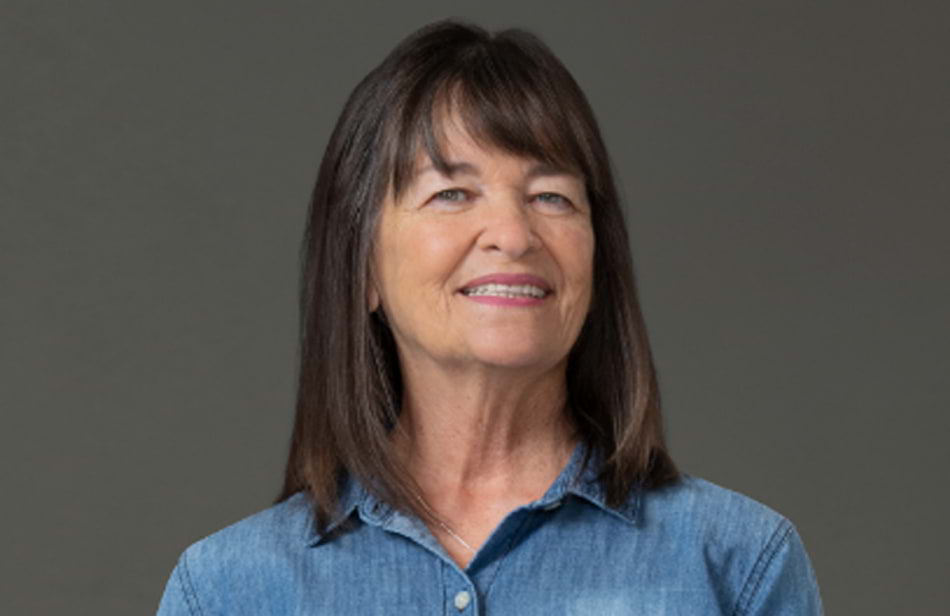
How did participating in this clinical trial affect your outlook on ADPKD?
Nancy: There’s good and bad in trying anything new, but this opportunity was worth it for me. I thought, This clinical trial could lead to a medication that could make a difference in my life, my children’s lives…and the lives of my grandchildren. When the trial ended and the drug was approved by the FDA, it was called JYNARQUE. My nephrologist prescribed JYNARQUE to treat my rapidly progressing ADPKD. We talked about the fact that JYNARQUE can cause serious liver problems. Because of this, I enrolled in the JYNARQUE Risk Evaluation and Mitigation Strategy, or REMS, program to get frequent blood tests to monitor for liver injury.
I do get tired a lot. It’s hard to say whether this is based on my age or the medication, but it is something my nephrologist and I are keeping an eye on. I also drink a lot of water and use the bathroom a lot. Please remember that this is my story, and your experience may be different. Now, knowing there’s a treatment for ADPKD—it’s huge. It changes your whole perspective.
What are your hopes for the future—not only for yourself, but also for your family?
Nancy: I’ve been given an opportunity to learn what is truly important in life. ADPKD is not my focus. Life is my focus. I’m thankful for the strength and courage I have been given to face my life one beautiful day at a time.
My children also decided to take control of their futures and got screened for ADPKD. As it turns out, three of them have been diagnosed. But so much has changed since my diagnosis. For them, ADPKD is in the early stages, and with continued research and development, I am hopeful for their futures, too.
Patients were compensated for their time. Patient images reflect their health status at the time the photos and videos were taken.
Receive helpful texts and
emails with information to support conversations with your nephrologist
and healthcare team.
Speak one-on-one with
a Peer Mentor living with
rapidly progressing ADPKD
and taking JYNARQUE.
Sign up for an ADPKD
Peer Conversations webinar
to talk with people living
with ADPKD.


the Future
Evelynn is living with rapidly progressing autosomal dominant polycystic kidney disease, or ADPKD, and taking JYNARQUE.
Get to know Evelynn.
The evening Evelynn started to experience pain across her lower back, she simply thought it was from a cheerleading injury. After her diagnosis, Evelynn embarked on her treatment journey without any sign of slowing down. By sharing her story, Evelynn aims to inspire others living with autosomal dominant polycystic kidney disease (ADPKD) to look to the future and have hope—because it’s hope that has kept Evelynn moving forward.
Please remember that none of the information discussed in this article should replace the conversations with your healthcare provider. Evelynn is sharing her own thoughts and experiences, so please keep that in mind as your thoughts and experiences may be different.
Talk to your doctor to see if JYNARQUE is right for you.
You’ve always been an active person since your high school years. What was it like for you when you were first diagnosed with ADPKD?
Evelynn: When I was first diagnosed with ADPKD, I was 17 years old and living with my parents. I was running late to get to school and my only excuse was that I had the worst pain stretching across my lower back. I thought I had sustained an injury during cheerleading practice a couple of days before and planned to ride it out, but the pain was so bad that I was sent home from school. My mother made an appointment for me to see a pediatric nephrologist who diagnosed me with ADPKD and gave me information about what it is and who it affects.

Did anyone else in your family know they also had ADPKD?
Evelynn: When the pediatric nephrologist asked my mom about our family’s medical history, she told her about my uncle’s kidney problems. She said that in light of that, I most likely had autosomal dominant polycystic kidney disease. She also explained that because I may have it, one of my parents probably also has it. I remember my parents really keeping everything “hush-hush,” but my mom was ultimately diagnosed with ADPKD as well.
You were pretty young when you were diagnosed. How did this affect your thoughts and plans for your future?
Evelynn: At first, I wasn’t overly concerned about what ADPKD meant for my future. After I was diagnosed, I went on to graduate high school, then university, and I really never made a big deal out of having ADPKD. For the most part, I was okay…I had fewer infections, I took my antihypertensives, and I checked my blood pressure at home regularly. As I got older and started to take care of myself more, I understood the hereditary nature of ADPKD, so I don’t really plan for a family.

What convinced you to take charge of your ADPKD?
Evelynn: At the end of 2017, the constant, dull pain I’d been ignoring in my side started to worsen, and I asked my new primary care physician about it. Even though she knew I had ADPKD, she didn’t run any labs—she simply told me it was a muscle strain and gave me a referral for an X-ray of my back. It was at this time I decided to change up doctors and get myself a nephrologist. And I’m so glad I did, because when I sat down with my new nephrologist, we went over my history with ADPKD together. He said the pain that I was experiencing was because my ADPKD is the type that rapidly progresses. When I heard that, I knew I made the right choice.
What was it like to start treatment with JYNARQUE?
Evelynn: Once I finally started JYNARQUE, I got into the habit of always having water around and making frequent trips to the bathroom. My blood pressure also decreased, so my doctor adjusted my antihypertensives accordingly. At first, I lost weight because I couldn’t keep anything down. I worked with my doctor to manage that and eventually the nausea eased. My doctor also told me about how JYNARQUE can cause serious and potentially fatal liver problems. He enrolled me in the JYNARQUE Risk Evaluation and Mitigation Strategy, or REMS, program to help me keep on track with my routine blood work I would need to monitor my liver function. That was just my experience, and everyone’s may be different.
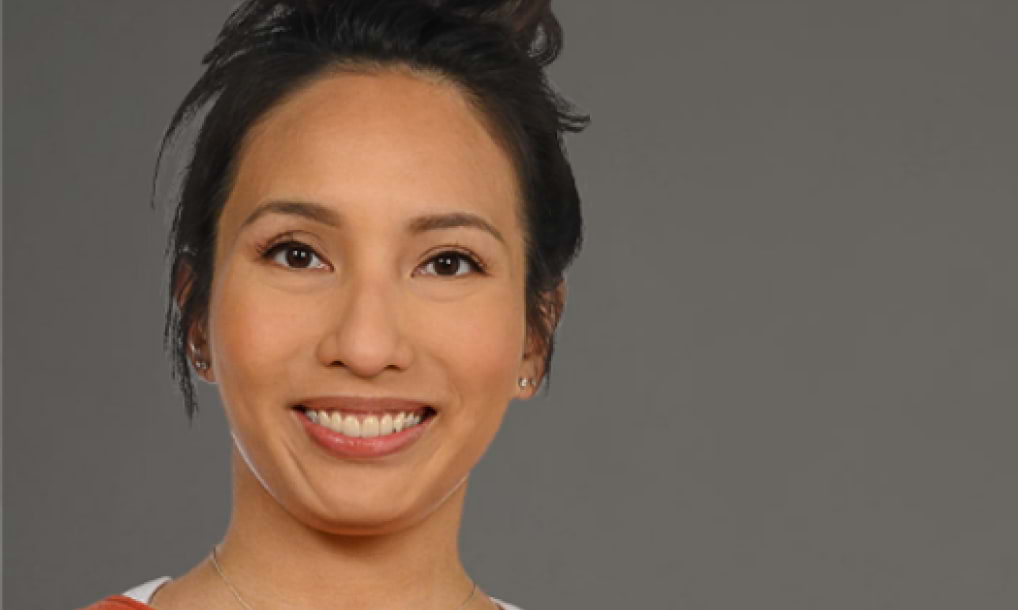
With my nephrologist’s okay, I got an MRI of my abdomen (I’d never had one before) so I could visualize what my kidneys looked like inside my body. There was less fear now because knowing that I had a treatment option to help slow my kidney function decline gave me hope. I was ready to see what the effects of ADPKD looked like in my body.
What gives you hope for the future of ADPKD?
Evelynn: Living with ADPKD used to make me believe I wasn’t going to live a very long life, based on the family history that we pieced together after both Mom and I were diagnosed. But I’m a pretty positive person, and I feel that the pain of ADPKD brought me to the wonderful specialists that I needed to help me change my life for the better. I am encouraged by the medical advances and by current results related to my lifestyle and treatment. Who knows what the future will hold, but I wholeheartedly believe that with JYNARQUE, diet, exercise, controlled blood pressure, a good support system, and a positive outlook on life, I have the strength and tools to live my life with ADPKD. There are always going to be risks no matter what you do in life, but I’ve found hope with JYNARQUE.
MRI=magnetic resonance imaging.
Patients were compensated for their time. Patient images reflect their health status at the time the photos and videos were taken.
Receive helpful texts and
emails with information to support conversations with your nephrologist
and healthcare team.
Speak one-on-one with
a Peer Mentor living with
rapidly progressing ADPKD
and taking JYNARQUE.
Sign up for an ADPKD
Peer Conversations webinar
to talk with people living
with ADPKD.


Future
Zack is living with rapidly progressing autosomal dominant polycystic kidney disease, or ADPKD, and taking JYNARQUE.
Get to know Zack.
Zack was diagnosed with autosomal dominant polycystic kidney disease (ADPKD) 25 years ago. For a long time, even with a family history of the condition, he never thought he would be impacted by ADPKD. A former officer in the U.S. Coast Guard and a fairly accomplished triathlete, Zack saw himself as linked to strength, stamina, and perseverance. Being affected by ADPKD made him suddenly feel like a 1965 model pickup truck, as opposed to a high-performance machine. But after living with ADPKD for several years, Zack has learned the key to managing it—knowing your limits, assembling your support team, and investing in your future.
Please remember that none of the information discussed in this article should replace the conversations with your healthcare provider. Zack is sharing his own thoughts and experiences, so please keep that in mind as your thoughts and experiences may be different.
Talk to your doctor to see if JYNARQUE is right for you.
You have a family history of ADPKD. Before you were diagnosed, what did you understand about the condition?
Zack: Growing up, I knew my mom had some kind of medical condition. I saw her trying several medications to combat her symptoms. By the time I was in college, I knew that it was a hereditary polycystic kidney disease, so there was a chance I could have it as well.
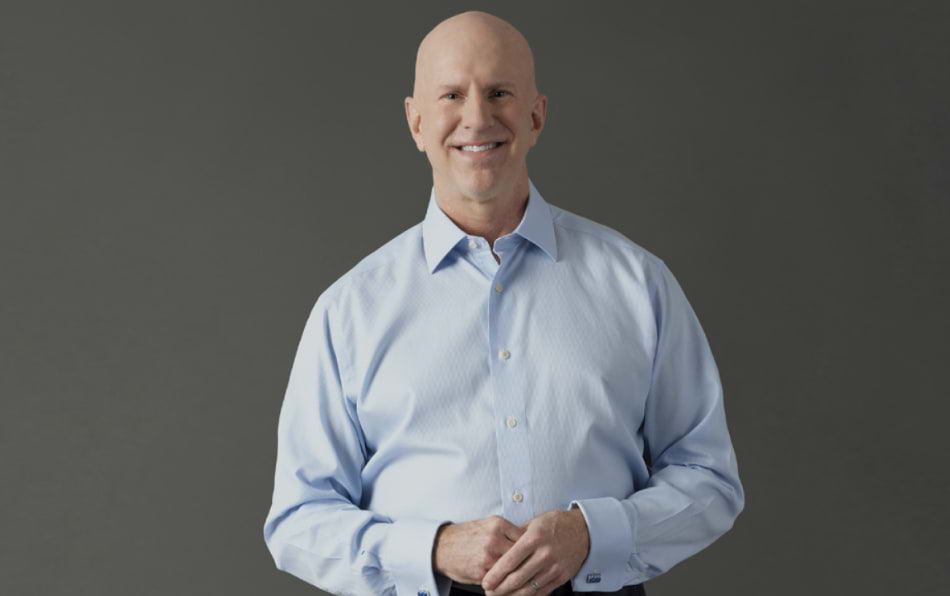
How did your mom’s experience with ADPKD prepare you for managing it?
Zack: I took my cues for how to live with ADPKD from my mom. She focused on preserving and protecting her kidney function. Together, my parents adapted to the disease, but they never let ADPKD dramatically impact their active lifestyle. My mom is 82, with no kidney transplant, and isn’t on dialysis. I hope my future is similar. My aunt tried to ignore her ADPKD, and it cost her her life way too early.
Even though my intent was to follow my mom’s example, there were some ways I had to adapt to manage my own ADPKD.
Do you have an example of how you adapted?
Zack: Sure. The first lesson I learned was: know your limits.
As an emergency manager in the U.S. Coast Guard, I responded to the worst oil spill to ever occur in the Gulf of Mexico, the Deepwater Horizon oil spill off the coast of Louisiana. My job was to coordinate the planning efforts to stop the flow of oil and clean up what had already discharged. It was exhausting, stressful, and physically and emotionally draining work. I worked 16-hour days for four weeks straight. Finally, I was released just before the Fourth of July weekend. My wife and I were going to spend the weekend in San Antonio to celebrate and relax. However, on the drive over, a cyst in my kidney burst.
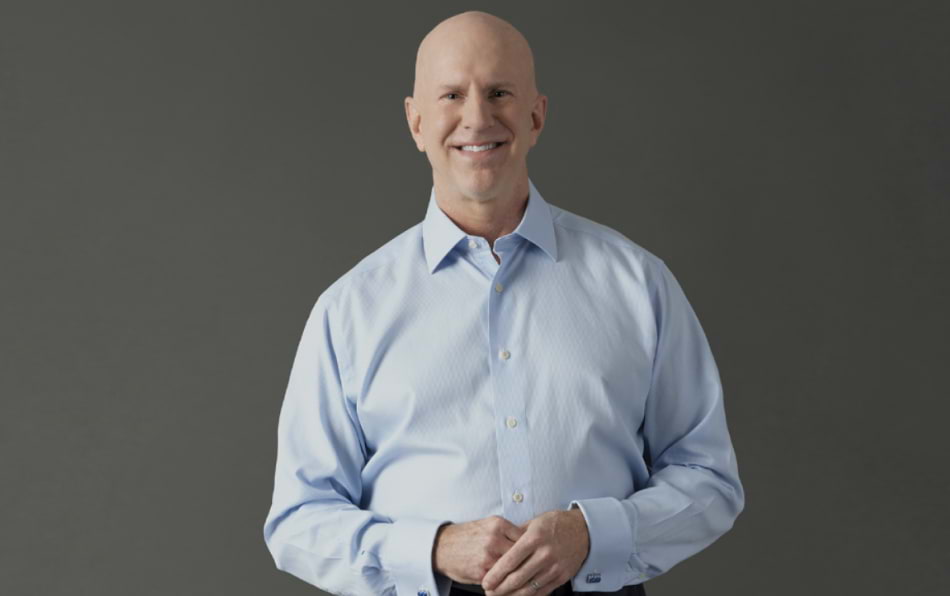
Oh my goodness! Had you ever experienced anything like that before?
Zack: I hadn’t, and having a kidney cyst burst is excruciatingly painful. My mom describes it as equivalent to “giving birth,” which makes me even more appreciative of her having me!
The pain caused me to go unconscious. Luckily, I was not driving. My wife took me to the hospital. There, I realized I was not invincible, I was not Captain America. I wasn’t courageous; I was careless. I ignored my ADPKD. It didn’t ignore me. It was a vicious, painful reminder that I had not been following my mom’s principles of preserving and protecting my kidneys. I had to reexamine my work-life balance and set new limits.
What helps you maintain those limits and keep managing ADPKD every day?
Zack: My wife really deserves all the credit for getting me to where I am today. I met her a little later in life, so ADPKD has been a part of our marriage from the get-go and, like my parents, we’ve managed it as a team. She researched nephrologists, insurance, pharmacies, formularies, treatment availability, copays, drug interactions, etc. She also puts up with me shamelessly drinking both our waters at restaurants—and then having the audacity to ask our waiter for refills!—and then at home having to pause movies so I can run and pee all the time! She is so patient, encouraging, supportive, and understanding.
My extended family is also a great resource and support network. Assembling your support team is key to managing ADPKD.
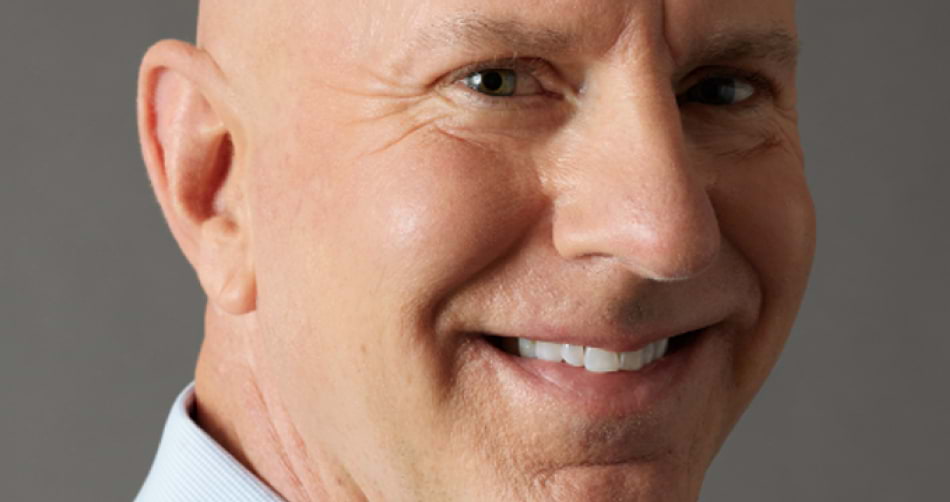
What do you do in terms of slowing down the progression of your ADPKD?
Zack: The silver lining of being diagnosed in my late 20s is that I was able to take early steps to manage my kidney function through lifestyle changes, diet, exercise, and medication. Those early steps also led to me finding out that I had rapidly progressing ADPKD years later because my nephrologist regularly monitored my eGFR, my kidney volume, and the size of my cysts through sonograms and MRIs. I invest in my future with ADPKD even now.
When I talked with my current nephrologist about taking JYNARQUE, it was because I felt it could make a difference in my life years down the road. By taking JYNARQUE now, I’m investing in my kidneys’ future because JYNARQUE has been shown to slow kidney function decline in adults with rapidly progressing ADPKD.
Before I started JYNARQUE, my doctor and I discussed that it can cause serious and potentially fatal liver problems. That’s why I have regular blood tests to monitor my liver function as part of the JYNARQUE Risk Evaluation and Mitigation Strategy, or REMS, program, due to the risk of serious liver injury. My doctor also warned me that I would have to drink large quantities of water when taking JYNARQUE. I didn’t see that as a negative consequence. Now, having to use a bathroom because I’m drinking so much water sure is! But personally, I can handle it. I just have to be more deliberate and methodical in my plans and activities. Of course, that is my experience with JYNARQUE. Someone should talk to their own healthcare provider to see if JYNARQUE is right for them.
Overall, how do you view your journey with ADPKD?
Zack: Living with ADPKD is challenging. Sometimes it’s a struggle. But you can manage. My life has evolved. Not dramatically, and some may say even for the better.
eGFR=estimated glomerular filtration rate; MRI=magnetic resonance imaging.
Patients were compensated for their time. Patient images reflect their health status at the time the photos and videos were taken.
Receive helpful texts and
emails with information to support conversations with your nephrologist
and healthcare team.
Speak one-on-one with
a Peer Mentor living with
rapidly progressing ADPKD
and taking JYNARQUE.
Sign up for an ADPKD
Peer Conversations webinar
to talk with people living
with ADPKD.


Jim is living with rapidly progressing autosomal dominant polycystic kidney disease, or ADPKD, and taking JYNARQUE.
Get to know Jim.
For a very long time, Jim didn’t know that his mother, let alone himself, had been diagnosed with rapidly progressing autosomal dominant polycystic kidney disease (ADPKD). When he did learn, he felt like he had missed out on time to take better care of his health and build a big support system. Now, Jim shares his story to inspire others to take charge of their ADPKD.
Please remember that none of the information discussed in this article should replace the conversations with your healthcare provider. Jim is sharing his own thoughts and experiences, so please keep that in mind as your thoughts and experiences may be different.
Talk to your doctor to see if JYNARQUE is right for you.
You learned about your ADPKD diagnosis a little differently than others with the condition do. What was that moment like?
Jim: When I was almost 30, my parents came to visit. While there, my mom said she needed to tell me something in private. My mom and dad pulled me into the garage, which we used for storage. We stood around boxes of belongings stacked to the ceiling, and my mom told me, “You have a kidney disease. I have it too. We just need to watch our blood pressure.” That’s how I found out my mom had ADPKD…and I did too.
How did your mom even know the both of you had ADPKD?
Jim: Not too long ago, I asked her. My mom said that the day after her diagnosis, she rushed my sister and me to the hospital to see if we had it; I was 10 and my sister was 7. When my mom heard I had ADPKD too, she was heartbroken; it ate her up for almost 20 years until she told me.
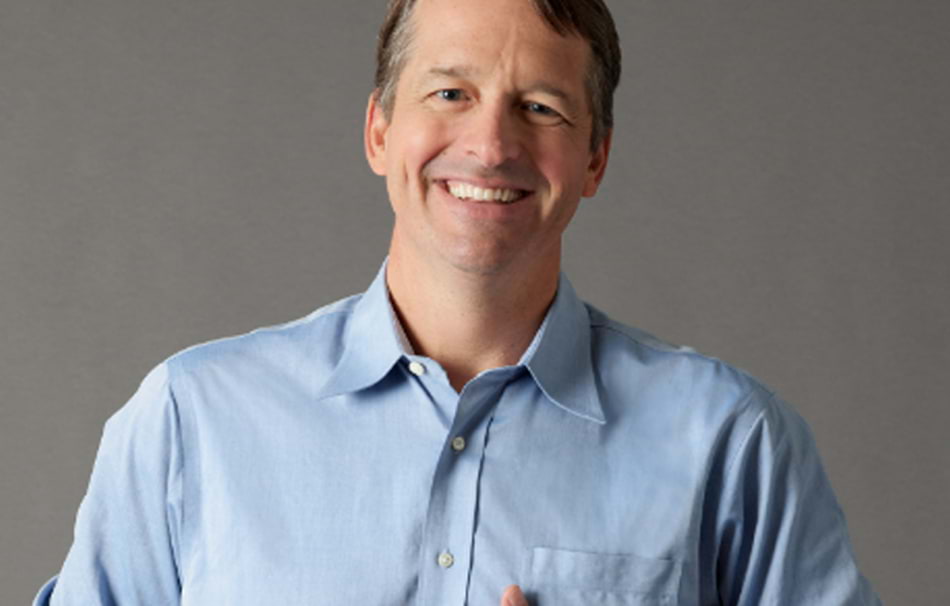
Do you know why you didn’t learn about your ADPKD until you were an adult?
Jim: I’m not sure why my mom waited so long to tell me I had ADPKD. Maybe she didn’t know how to tell me; maybe it was the guilt; or maybe it was this idea our family had that you needed to “appear” sick to “be” sick. When I think of my own kids, I can imagine how tough it is to tell your child they inherited ADPKD.
How do you think your life would have been impacted if you’d known about ADPKD earlier?
Jim: If I’d known about ADPKD earlier, I’d have made some different choices. I never really paid close attention to how I was treating my body. I always felt good and could do pretty much anything I put my mind to. If I wanted to roll off my couch and run a half marathon, I had the energy and ability to do it. So I never recognized any signs that something was wrong with my kidneys. There were times I was put on antibiotics because of blood in my urine, but I never kept my follow-up appointments with my doctors when I was through with the antibiotics.
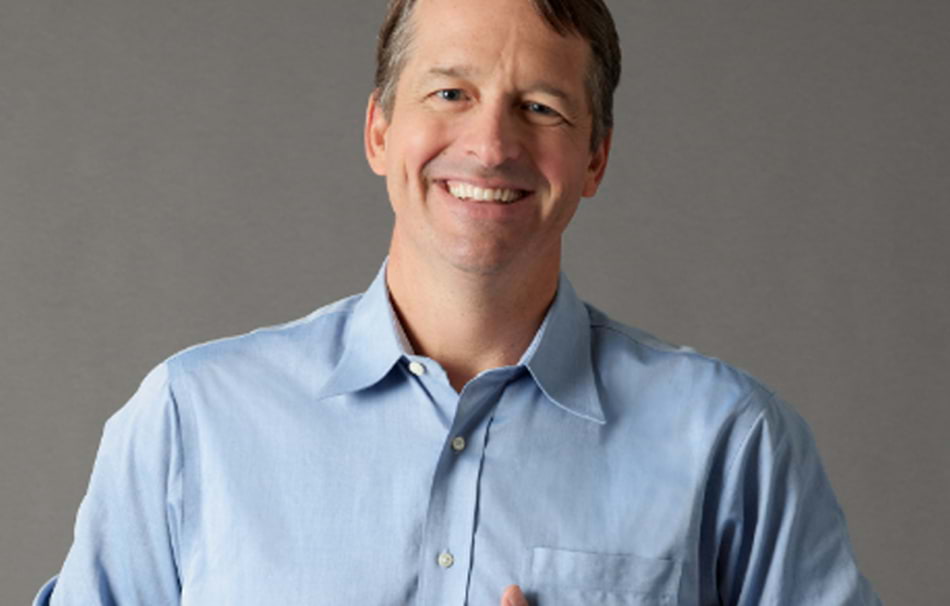
Did your attitude change once you learned you had ADPKD?
Jim: Because my parents had been so nonchalant about telling me my diagnosis, I did nothing because I figured it wasn’t that big of a deal. And over the next few years, ADPKD did not seem to impact me. So I kept gaining more weight and wasn’t always diligent about managing my blood pressure or keeping up with my nephrologist’s appointments. My body was working harder and harder each year, while my cysts were growing larger and larger.
What did convince you to take charge of your ADPKD?
Jim: Probably the first time ADPKD became real to me was when my mom told us she would need a kidney transplant. While my mom was in surgery, her childhood best friend said that my mom had been training for this, and that’s why she kept herself in such great shape. It was the wake-up call I’d been waiting for.
Shortly after my mom’s transplant, my nephrologist’s nurse told me I had to stop pushing off my appointments and start facing this disease. I started eating right and religiously exercising. I also started talking to my nephrologist more. That’s how I found out about JYNARQUE. My doctor thought it would be good for me since I had rapidly progressing ADPKD.
What was it like to get on treatment with JYNARQUE?
Jim: The welcome kit answered a lot of my questions on JYNARQUE, and my doctor did share with me that because JYNARQUE can cause serious and potentially fatal liver problems, I need to have regular blood tests to monitor my liver function. This is part of the JYNARQUE Risk Evaluation and Mitigation Strategy, or REMS, program.
As far as side effects go, I’ve had the things like waking up at night and going to the restroom more frequently, and thirst, plenty of thirst. But for me, this is manageable. This is my own experience regarding side effects from taking JYNARQUE. Side effects are on a patient-by-patient basis.
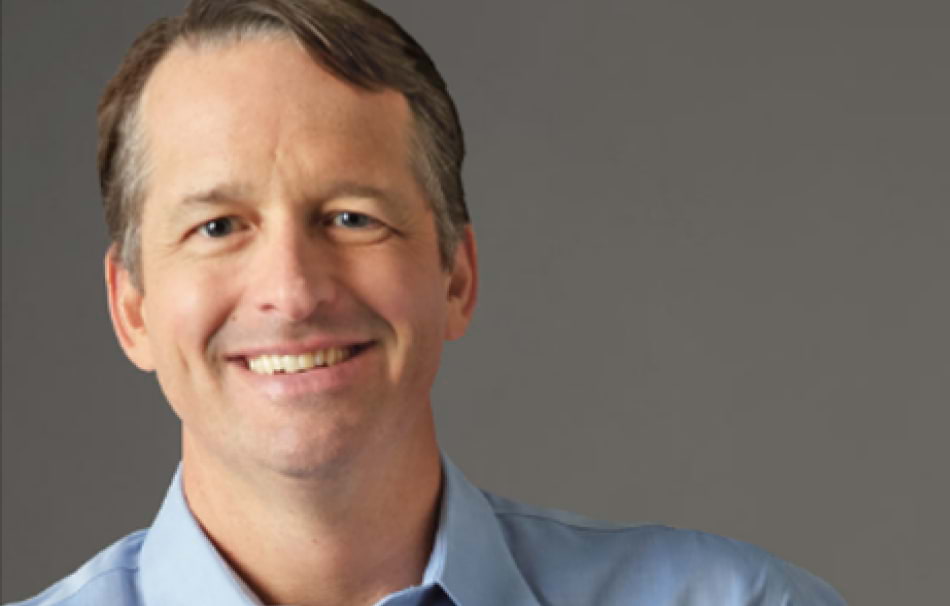
What results have you seen after taking better care of your health?
Jim: In my case, everything has been favorable so far despite my side effects; my lab results have improved, probably from a combination of lifestyle changes and JYNARQUE helping to slow the decline of my kidney function. Please remember, this is just my experience. Others should talk to their healthcare provider to see if JYNARQUE is right for them.
Why is it important to you now to manage your ADPKD?
Jim: I’m eating and living healthy and staying active, not just for me, but for my family. I’m doing everything I can to take care of my health today, so I can be there for them tomorrow. I hope others with ADPKD do the same, because they deserve to live their lives…and their family deserves to have them in theirs.
Patients were compensated for their time. Patient images reflect their health status at the time the photos and videos were taken.
Receive helpful texts and
emails with information to support conversations with your nephrologist
and healthcare team.
Speak one-on-one with
a Peer Mentor living with
rapidly progressing ADPKD
and taking JYNARQUE.
Sign up for an ADPKD
Peer Conversations webinar
to talk with people living
with ADPKD.


Out My
Own Path
Lauren is living with rapidly progressing autosomal dominant polycystic kidney disease, or ADPKD, and taking JYNARQUE.
Get to know Lauren.
Lauren’s family has a long history of autosomal dominant polycystic kidney disease (ADPKD). Her great-grandfather had it, her grandfather died young from it, and her father was diagnosed with it at 29. Growing up, Lauren always knew that her father had ADPKD and that she could have it as well. When she was diagnosed, she did all she could to manage it. Her parents prepared her from a young age to take care of her kidneys, and now Lauren wants others with ADPKD to do the same and be proactive about their treatment.
Please remember that none of the information discussed in this article should replace the conversations with your healthcare provider. Lauren is sharing her own thoughts and experiences, so please keep that in mind as your thoughts and experiences may be different.
Talk to your doctor to see if JYNARQUE is right for you.
From a young age, you knew your father had ADPKD. How was that explained to you as a kid?
Lauren: I am thankful that my parents didn’t hide anything from me regarding my dad’s ADPKD. I don’t remember ever not knowing that there was a 50 percent chance that I might also have it. My parents suggested that I check my blood pressure consistently, follow a low-protein and low-sodium diet, and drink lots of water so that if I did have ADPKD, I would be doing something to help my kidneys. It wasn’t something I feared; I was scared of what the future would bring for my dad, though.
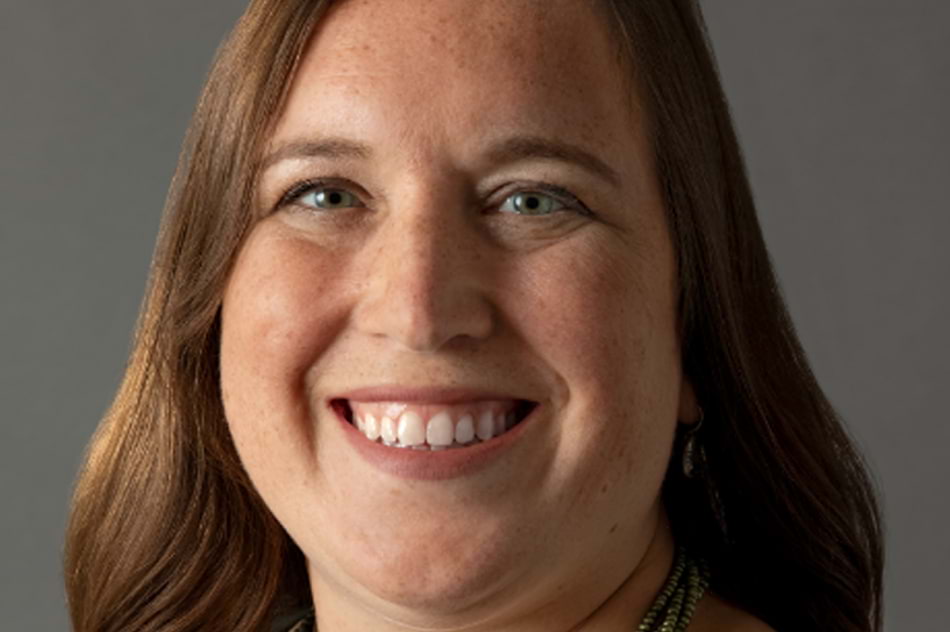
Why were you worried about your dad’s future with ADPKD?
Lauren: At the time, my dad’s only option for treatment was to wait for kidney failure and seek a transplant.
When I was around 10, his condition worsened. His creatinine levels had gotten to the point where he was placed on the kidney transplant list and started on dialysis. I have a lot of memories of meals in the hospital cafeteria with my mom while my dad was on dialysis.
How did you discover that you also had ADPKD?
Lauren: It was when my husband and I were expecting our first child and I had my first ultrasound. It was in my medical history that my father’s family has the gene for polycystic kidney disease, so as part of the routine ultrasound, they checked mine and the fetus’s kidneys. The fetus’s looked great, but mine were cystic. They looked like gigantic grapes under the microscopic lens. I left knowing that I would be having a girl, and also that I did indeed have ADPKD.
Other than knowing about my genetics, this was something I had no outward indication of. I did not dwell on the sadness, but I could not help but wonder if this was something I would pass on to my offspring like it was passed down to me. I decided right then that I would not hide ADPKD from my kids, just like my parents never hid my dad’s diagnosis from me.
What next steps did you take to manage your ADPKD?
Lauren: I followed up with my primary care physician. We agreed I was to monitor my blood pressure regularly and have checkups every six months. Eating low-protein, watching sodium, drinking lots of water, and regular exercise would also help.
I kept up with that advice. Then about five years later, I experienced swelling in my legs and high blood pressure. I went to my regularly scheduled nephrologist appointment and she recommended starting a low dosage of blood pressure medication. My health choices helped me maintain kidney function, but, not unexpectedly, the cysts in my kidneys were growing, as we knew they would.
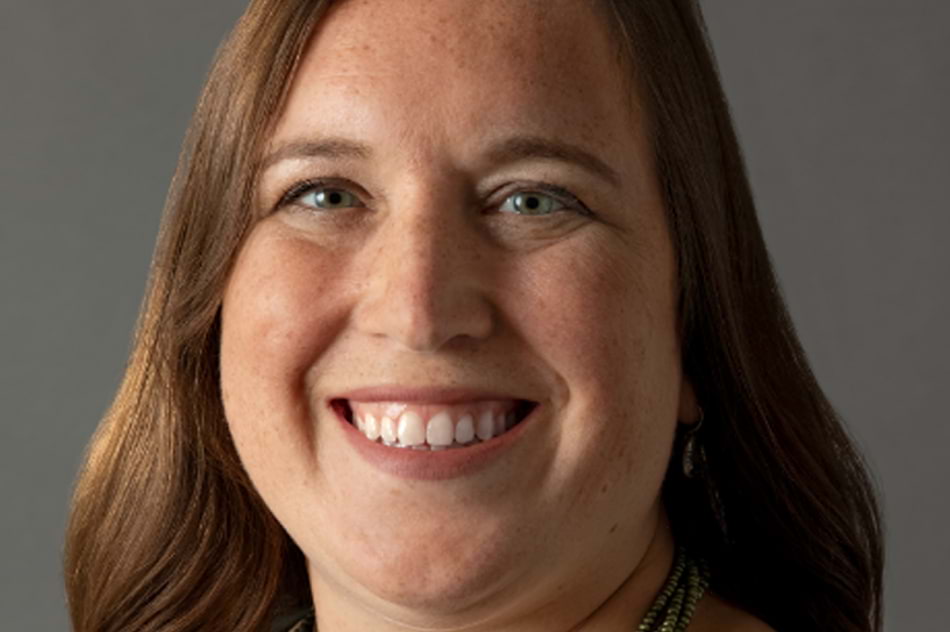
So you were doing everything right, but your ADPKD still progressed?
Lauren: I felt like I had prepared for this for more than a decade. I monitored my blood pressure daily, but it still increased. My urinalysis was also good, but my GFR showed signs of a decrease in kidney function. I didn’t feel quite right and was exhausted at night. My legs retained water, and I felt anemic although my iron levels were normal. Plus, a CT scan showed my kidney cysts had grown larger. I was so fatigued that it was hard to keep up with my young family and my job.
What did you turn to for more help with managing ADPKD?
Lauren: When I went back to my nephrologist’s office for a six-month follow-up, I could tell something was different. My nephrologist walked in the room, excited about something. She inquired if I had heard about JYNARQUE for adults with rapidly progressing ADPKD. She read me some of the physician prescribing information and the Medication Guide and asked if I would be interested in it. I said, “Absolutely.” I had actually already heard of JYNARQUE through the PKD Foundation. It had just recently been FDA approved, and I was prepared to ask my doctor about it even before she brought it up.
What made you interested in JYNARQUE as a potential treatment?
Lauren: For years, a treatment other than dialysis and transplant had been sought for ADPKD. Finally, at a time when I needed it most, it was available for patients like me with rapidly progressing ADPKD. I could not feel more hopeful. I felt like I owed it to my kids to search for something that could help with a condition we all might share.
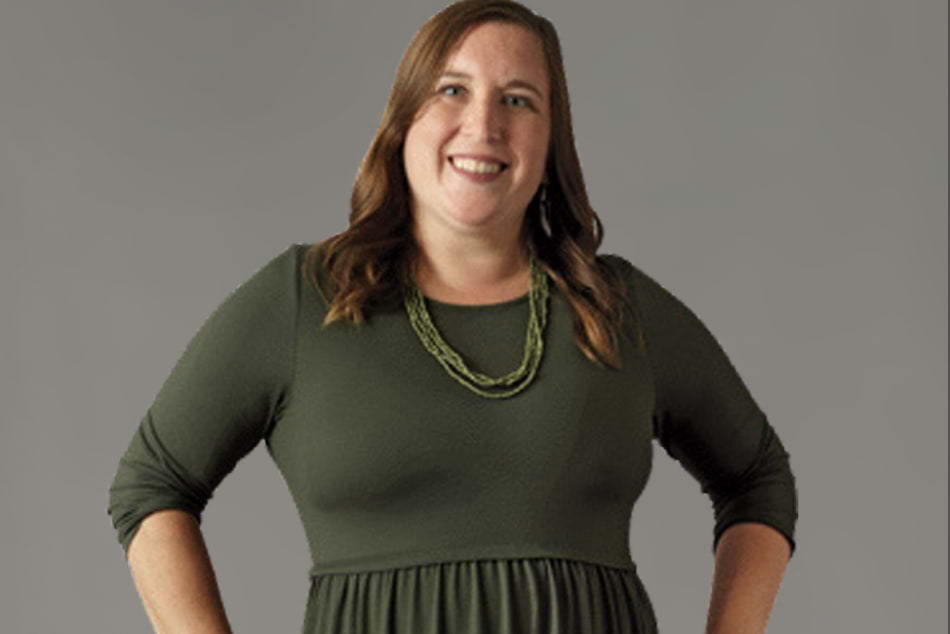
What was it like to get started on JYNARQUE?
Lauren: I did need to get additional blood work, urinalysis, and insurance approval to see if I qualified for the treatment. My doctor explained that JYNARQUE can cause serious and potentially fatal liver problems, so it is important to adhere to scheduled checkups to test liver enzymes to ensure my liver is working properly. The nurse also gave me paperwork to fill out for the JYNARQUE Risk Evaluation and Mitigation Strategy, or REMS, program, which helps reduce serious risk of liver injury by monitoring liver function through scheduled blood testing.
I got a call on Christmas Eve telling me that I had been approved and that the specialty pharmacy would call me to arrange my first shipment. The timing felt perfect, falling on the same holiday that my dad got his first successful transplant. The first week I was on JYNARQUE, I did transition to taking more water in and putting more urine out. I have learned to plan ahead whenever I have to go on a long trip or somewhere without a restroom.
I’ve been on JYNARQUE for a while now, and my doctor says my kidney function decline has slowed. With healthier management of my ADPKD, my water and sodium levels are better.
What do you hope the future of ADPKD will look like—whether it’s your own future with the condition, or just in general?
Lauren: I hope I might only need one transplant, unlike my dad, who ended up with two. I’m glad I at least have the opportunity to do something proactive. With JYNARQUE, I know that I’m doing something twice a day to slow the decline in my kidney function.
I am excited to share my story of hope. My children have a 50/50 chance of having this condition, but I want them to see it does not have to hold them back. I can’t change yesterday, but I know the future will bring us more advances. ADPKD is a piece of who we are, but we have not let it define us.
CT=computed tomography; GFR=glomerular filtration rate.
Patients were compensated for their time. Patient images reflect their health status at the time the photos and videos were taken.
Receive helpful texts and
emails with information to support conversations with your nephrologist
and healthcare team.
Speak one-on-one with
a Peer Mentor living with
rapidly progressing ADPKD
and taking JYNARQUE.
Sign up for an ADPKD
Peer Conversations webinar
to talk with people living
with ADPKD.


by a Treatment Option
Joseph is living with rapidly progressing autosomal dominant polycystic kidney disease, or ADPKD, and taking JYNARQUE.
Get to know Joseph.
Autosomal dominant polycystic kidney disease (ADPKD) was always a force in Joseph’s family. It can be traced back to his paternal great-grandmother, affecting Joseph and many of his relatives. In Joseph’s family, the consequences of ADPKD included early death related to health complications, removal of kidneys, dialysis, and lots of transplants. Joseph saw his relatives respond to ADPKD in a variety of different ways, from ignoring it to an intense focus on diet and exercise. He chose to face ADPKD proactively and pursue treatment options. Joseph wants others with ADPKD to do what they can to take charge of their condition.
Please remember that none of the information discussed in this article should replace the conversations with your healthcare provider. Joseph is sharing his own thoughts and experiences, so please keep that in mind as your thoughts and experiences may be different.
Talk to your doctor to see if JYNARQUE is right for you.
ADPKD plays a big part in your family history. How did you understand it as a kid?
Joseph: At some point growing up, my parents told my brother, sister, and me about this disease that my dad had that could also affect us. My younger brother found out that he had ADPKD in high school.
The reality in our family is that ADPKD means that somewhere around age 55, you may be put on a transplant list and receive a new kidney. If that isn’t possible, then you may face dialysis three times a week for the rest of your life.
What was it like to watch multiple family members get transplants or go on dialysis?
Joseph: Many of my family members, when it was their time, successfully received transplanted kidneys. They recovered quickly and went back to work and life feeling better. That was not what I saw in my dad’s life.
That sounds scary. What did your dad have to face with ADPKD?
Joseph: My dad had his first transplant in his mid-50s. Things went well at first and there was a lot of optimism. However, he had many complications and went on to have two more transplants in the next 10 years. Between the high points of the transplants, there was a lot of dialysis and several hospitalizations due to infections from the immunosuppression medications. In fact, my mom estimates that my dad has been hospitalized over 20 times (and still counting) in a little over a decade for complications directly related to his ADPKD and the transplants.
For several years now, his third donated kidney has been damaged and functioning at a reduced level, but it has been adequate to keep him going and active. He does know that if this one fails, his body won’t be able to handle another transplant.
When my dad had his first transplant, ADPKD became real for me in a way it never had before. I remember thinking, Oh man…that’s going to be me one day.
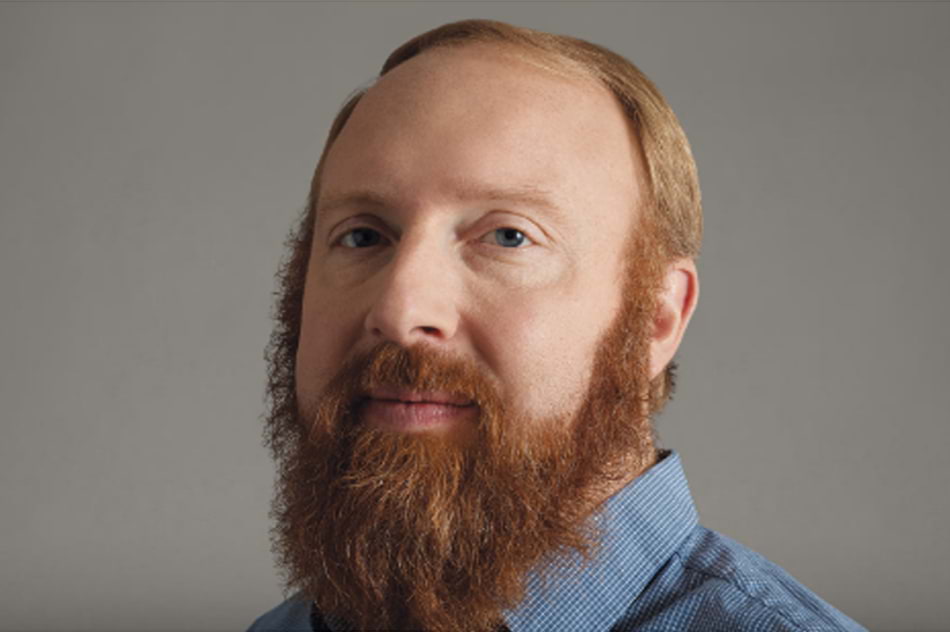
What was it like when you officially got your ADPKD diagnosis?
Joseph: I was around age 30 when my family doctor ordered a kidney ultrasound to see if I had ADPKD too. I remember where I was standing in my bedroom when he called to tell me that it showed cysts on my kidneys. It was real. I knew I would have to deal with the consequences of ADPKD like many others in my family.
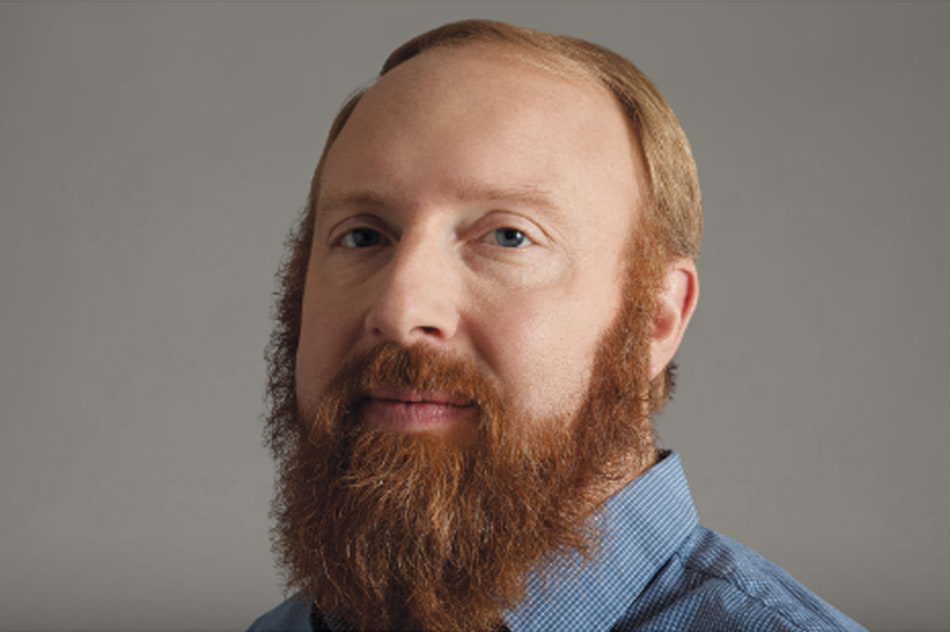
What did you decide to do to help manage your ADPKD?
Joseph: A few years after my diagnosis, my cousin, who also has ADPKD, connected me with some people at a major research clinic who were doing some drug studies related to ADPKD. I went through some short-term studies with them and then began my first long-term study with tolvaptan, which was later approved by the FDA to slow kidney function decline in adults at risk of rapidly progressing ADPKD. It felt good to be a part of research that could benefit other people with ADPKD…and that I myself might benefit from the drug, too.
My nephrologist at the clinic and the other study coordinators were quick to share the importance of a healthy lifestyle. Through my many, many trips to the clinic, I learned the importance of exercising, watching my protein consumption, controlling my blood pressure, and staying at a healthy weight. I was pleased that all of these things plus tolvaptan would create an arsenal to help me in my fight to slow down kidney function decline.
What made you decide to stick with tolvaptan as a treatment option?
Joseph: I began to wonder if tolvaptan—plus living a healthy lifestyle—could slow the decline in my kidney function, and I tried to imagine what kind of an impact that would have. After watching all of the ups and downs that my mom and dad have gone through with ADPKD, these thoughts seemed very attractive.
After the FDA approved tolvaptan as JYNARQUE, I continued with the medication and kept my nephrologist from the clinic. Because JYNARQUE can cause serious and potentially fatal liver problems, I have regular blood tests to monitor my liver function as part of the Risk Evaluation and Mitigation Strategy, or REMS, program.
I have had to make adjustments while on JYNARQUE. I drink a lot of water every day. Wherever I go, I need to bring a full water bottle and keep my eye out for a bathroom. The swing between thirst and the pressure of a full bladder is constant. My kids have gotten used to that fact whenever we travel. They understand that Dad needs to stop to use the bathroom a lot, and they roll with it. Keep in mind, this is just my experience and others’ could be different.
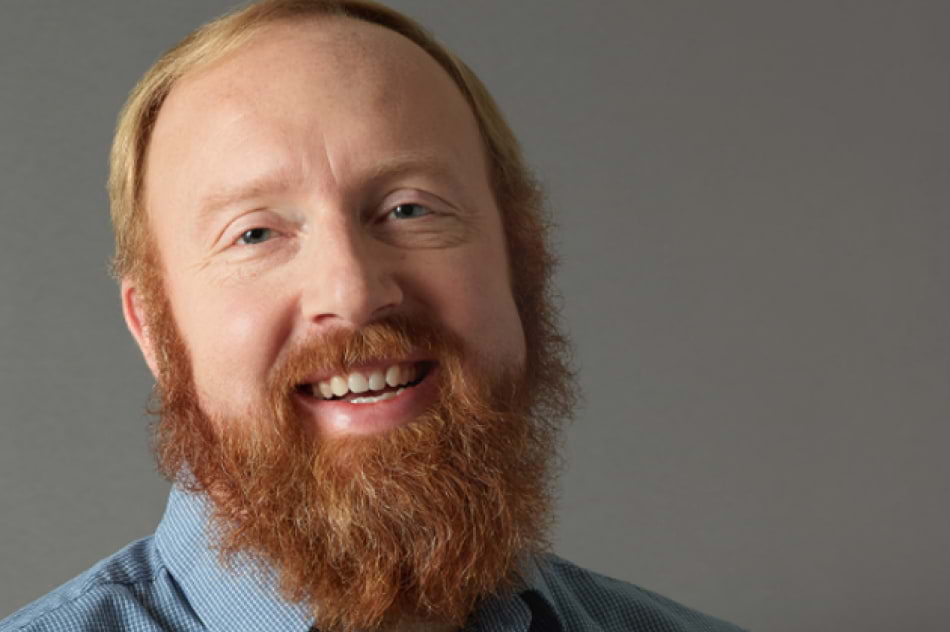
You saw various ways of handling ADPKD growing up. How do you try to model life with this condition for your own family?
Joseph: My goal for my children is for them to see we’ve done everything we can about ADPKD, and it doesn’t have to stop them from living their lives or dreams. They know that I have some kind of disease, that I’m also doing everything I can to fight it, and I’m trying to help other people with ADPKD.
My family still travels, pursues the vocations we are passionate about, and lives life not because I have ADPKD, but in spite of it. I rest in the fact that I am doing everything I can to slow the decline of my kidney function. We don’t ignore ADPKD—we deal with it and move on with life. Hopefully, there will be lots more options for the generation to come, so that they don’t have to let ADPKD define who they are and what they can do.
Patients were compensated for their time. Patient images reflect their health status at the time the photos and videos were taken.
Receive helpful texts and
emails with information to support conversations with your nephrologist
and healthcare team.
Speak one-on-one with
a Peer Mentor living with
rapidly progressing ADPKD
and taking JYNARQUE.
Sign up for an ADPKD
Peer Conversations webinar
to talk with people living
with ADPKD.


About My
Diagnosis
Will is living with rapidly progressing autosomal dominant polycystic kidney disease, or ADPKD, and taking JYNARQUE.
Get to know Will.
Family means everything to Will. His parents modeled positive life lessons for him growing up: to live the American dream, he must do well in school, work extremely hard, and do the best he can—no matter what he was doing. On the flip side, his family was stoic and did not discuss difficult topics. So when it came to facing autosomal dominant polycystic kidney disease (ADPKD), they never discussed managing it—or discussed ADPKD at all—which later put Will’s health in jeopardy. To do the right thing for himself and his family, he sought out the best way to manage his ADPKD.
Please remember that none of the information discussed in this article should replace the conversations with your healthcare provider. Will is sharing his own thoughts and experiences, so please keep that in mind as your thoughts and experiences may be different.
Talk to your doctor to see if JYNARQUE is right for you.
How did you learn about your mom’s ADPKD diagnosis—and that you might have it as well?
Will: In 2004, my mom called all of her kids together and finally let us know that she had ADPKD. She recommended that we all get checked out. The first thing I did was discuss this bombshell with my wife, Judy, and then I saw my general practitioner, who ordered an ultrasound and declared I had “fatty kidneys.” That did not sit well with Judy or me, and we wanted a second opinion. We found a nephrologist that specialized in ADPKD patients. The second ultrasound told my new nephrologist everything she needed to know. At age 40, I was officially diagnosed with ADPKD.
Did you ever have any hint that you might have ADPKD?
Will: For several years, I went to the doctor’s office for my annual physical and usually had elevated blood pressure readings. The doctors and I always rationalized it away by saying it’s “white coat syndrome,” which is when nervousness elevates someone’s blood pressure during appointments.
To tell you the truth, my first emotion after hearing my diagnosis was relief at finding out what was causing my high blood pressure. It also explained why I had a contrast-enhanced kidney ultrasound done around age 11, and why my mom always had backaches and an unexplained hernia, took so many medications, and needed afternoon naps.
What were your next steps after getting your diagnosis?
Will: Even with all of this evidence in front of me, I convinced myself that I would be okay until I was 70 to 75. During this time, I found out that my uncle had started kidney dialysis at age 79, and my mom was 73 when she told us about her ADPKD. This felt like enough proof for me that I didn’t have to worry for another 30 to 35 years. I continued on with my life.
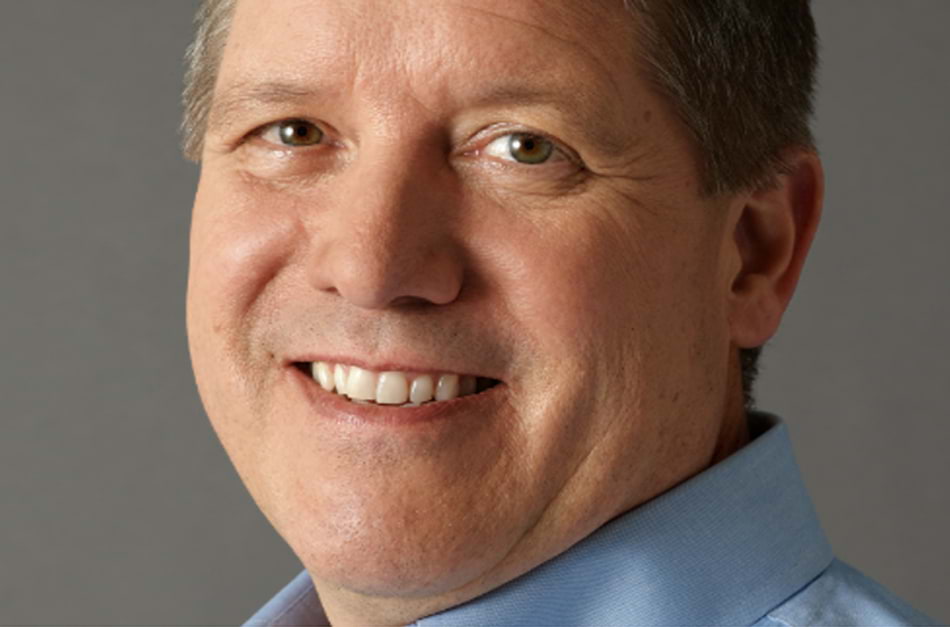
What prompted you to take ADPKD seriously?
Will: In 2017, my son, Patrick, and I agreed that after he graduated from high school in the spring of 2022, we would fulfill my lifelong dream to bike across the country—me on the bike, him driving the support vehicle. That gave me four years to get back into biking shape.
By the end of 2017, I’d logged over 2,000 miles—a good start. But halfway through 2018, I noticed I wasn’t making any progress on my biking goals. Something was really wrong. I was getting headaches, I was always tired and easily winded, and my back was hurting every day. By then, I was only two weeks out from my annual nephrology appointment. When I got to the doctor’s office, my blood pressure was out of control. For the first time, my doctor could feel my kidneys through my stomach. We found that in less than nine months my eGFR—a test that measures kidney function—had dropped drastically. My ADPKD was rapidly progressing, and I now had stage 3b kidney failure.
That sounds terrifying. What did you think when you got those results?
Will: No! This is too soon. In my mind, this was not supposed to happen for another 20 years. I was in denial. Why me? Did my kids also have ADPKD? They had a 50 percent chance. My options were to wait until my eGFR fell more to make a treatment decision; start taking JYNARQUE, a newly approved drug my nephrologist recommended; or do what my mother did, which was nothing.
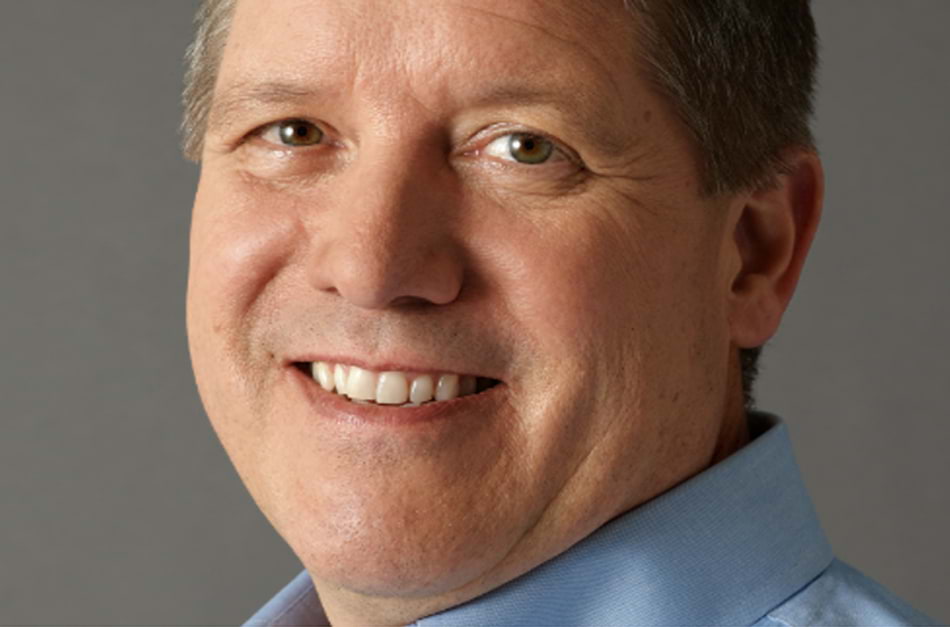
How did you decide what to do next?
Will: My mom passed away from end-stage renal failure due to ADPKD on September 11, 2007. She had chosen not to go on kidney dialysis. It was a heart-wrenching day for me and my family. A few days before my mother passed away, her last words to me were, “If this happens to you, please do something like going on dialysis. You have too much to live for.” Those words have stayed with me all of these years, and I thought of them again when I realized my ADPKD was not going to go the way it did for my mom and uncle. I did have too much to live for—doing nothing wasn’t an option.
So together, my nephrologist and I decided I would start JYNARQUE to try something that might help slow the decline of my kidney function. After stabilizing my blood pressure with appropriate medications and being authorized by my health insurance company, I was finally able to start JYNARQUE at the end of April 2019. Because JYNARQUE can cause serious and potentially fatal liver problems, I have regular blood tests to monitor my liver function as part of the Risk Evaluation and Mitigation Strategy, or REMS, program. My hope is to slow the progression of my ADPKD and the decline in my kidney function as much as possible.
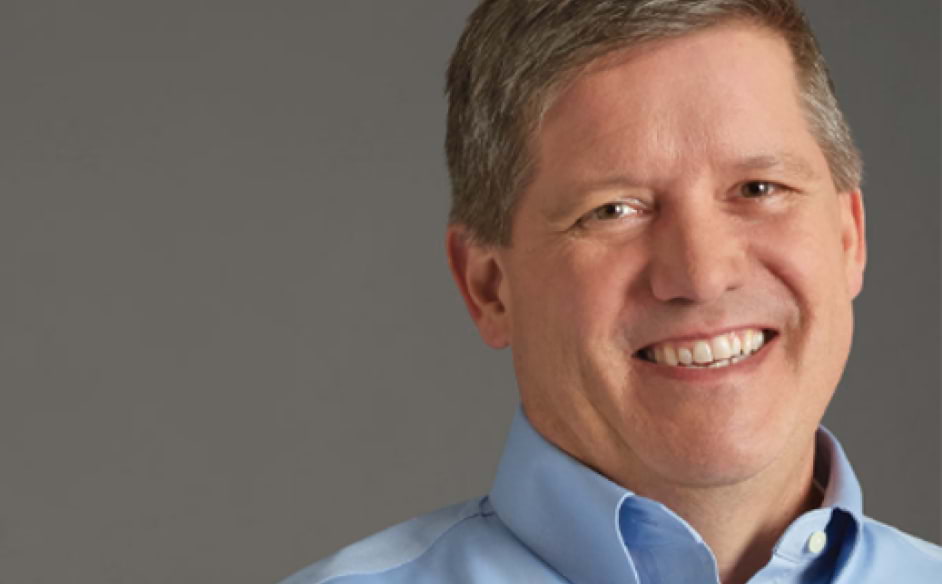
What else do you do to help manage ADPKD?
Will: I made some life-changing adjustments like improving my diet and surrounding myself with healthcare providers that know about ADPKD. I also have to drink more than five liters of water per day with JYNARQUE, which causes me to go to the bathroom a lot. I pay much closer attention to where the restrooms are and have a portable urine bottle in each car. Knock on wood—I have not needed to use the bottles yet. As part of this, I learned my limitations during biking (I need to drink even more water so as not to dehydrate). Because I wake up several times a night to go to the bathroom, I never get a full night’s sleep, so I catnap whenever I can during the day, too. I also openly discuss ADPKD with family and friends. These discussions have shown me how many wonderful people there are in this world.
What advice do you have to others living with ADPKD?
Will: Be who you are and live true to yourself. Figure out who and what is important to you and your family, then hug and love them each and every day. You have so much to live for.
eGFR=estimated glomerular filtration rate.
Patients were compensated for their time. Patient images reflect their health status at the time the photos and videos were taken.
Receive helpful texts and
emails with information to support conversations with your nephrologist
and healthcare team.
Speak one-on-one with
a Peer Mentor living with
rapidly progressing ADPKD
and taking JYNARQUE.
Sign up for an ADPKD
Peer Conversations webinar
to talk with people living
with ADPKD.


Lauren is living with rapidly progressing autosomal dominant polycystic kidney disease, or ADPKD, and taking JYNARQUE® (tolvaptan).
Please remember that none of the information discussed in this article should replace the conversations with your healthcare provider. Lauren is sharing her own thoughts and experiences, so please keep that in mind, as your thoughts and experiences may be different.
My family’s journey with autosomal dominant polycystic kidney disease, or ADPKD, began in the early 1900s. My great-grandfather was placed in a Philadelphia orphanage, as his father died at a young age of what we now know was ADPKD. My grandfather died of the same condition at age 43. Then in 1979, two years before I was born, my parents were in an ice-related car accident, in which my dad bruised his kidneys. As he recovered from the accident in the hospital, an X-ray showed he had this condition, too.
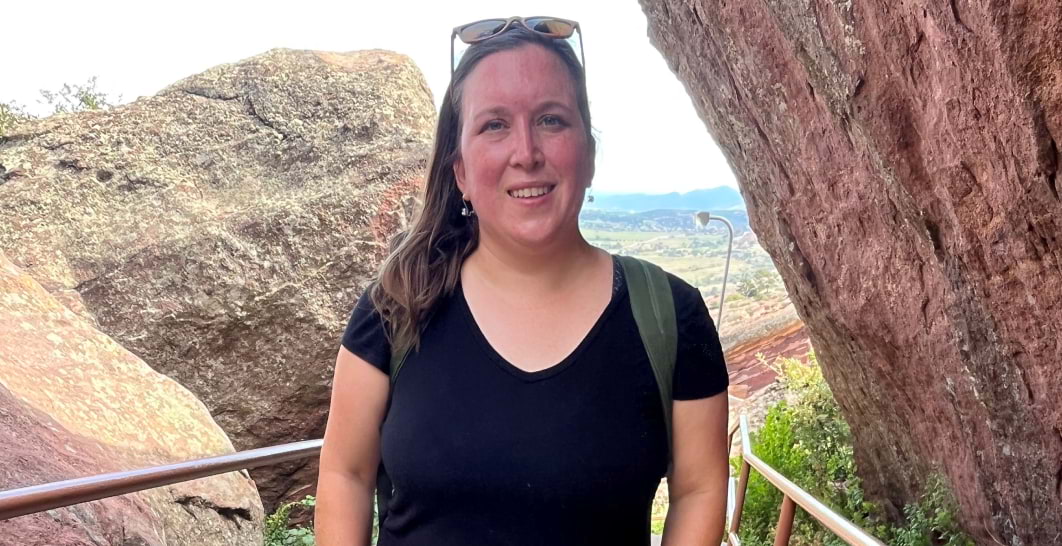
My parents had met with a genetic counselor and learned that my dad’s offspring would have a 50 percent chance of inheriting ADPKD as well. Ever since I was young, my parents were very open with me about this information, and I’ve always been thankful for that.
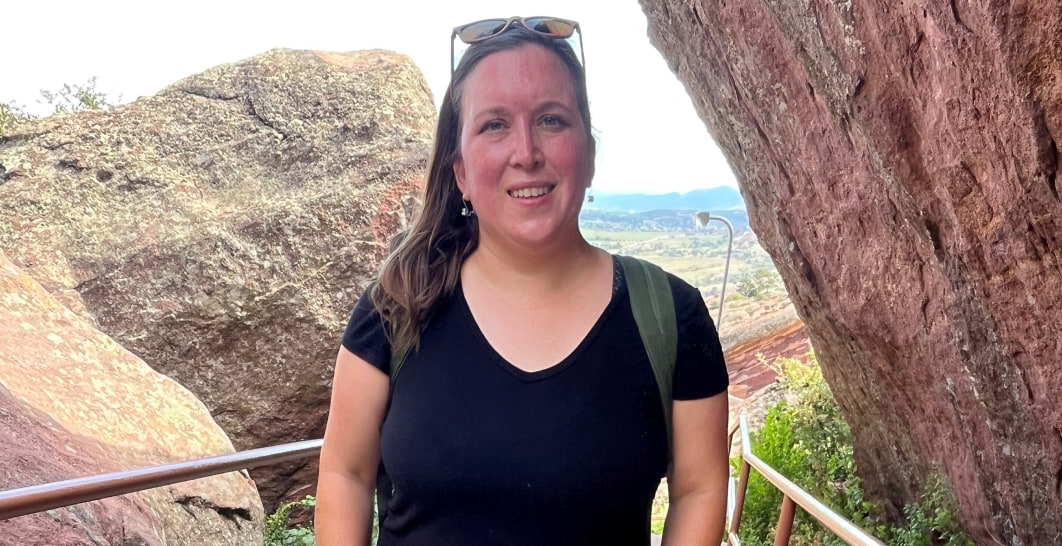
I knew I could ask my parents any questions that I had, and they would always answer them. When I was around 10, my dad’s condition worsened. I remember the day he shared the news. He was at his nephrologist, and his creatinine levels had reached the point where he needed to be placed on the kidney transplant list and would have to start kidney dialysis. Tears welled up in my eyes as I was faced with the sadness of knowing that my dad’s health was failing. Yet I still had an overwhelming feeling of hope for my dad’s future.
Years later, when my husband and I were expecting our first child, it was discovered during a routine ultrasound that I did indeed inherit ADPKD from my dad. This meant my children also had a 50 percent chance of inheriting it from me. But my mind was clear. I had already decided that I would not hide ADPKD from my kids, just like my parents never hid my dad’s diagnosis from me. My family’s transparency was so important to me and allowed me to better understand what my dad was going through.
And today that’s still true. My children know that I was 27 when I was diagnosed and that they have a 50 percent chance of inheriting it from me. They also know that they can ask any questions regarding ADPKD and that I will answer them to the best of my knowledge, and if I don’t know, I will find out for them.
My family’s honesty with ADPKD has been nothing but positive. My genes are what make me who I am, and I will not hide from them. I want my children to always feel that they can ask me anything, just like how I felt with my parents.
Patients were compensated for their time. Patient images reflect their health status at the time the photos and videos were taken.
Receive helpful texts and
emails with information to support conversations with your nephrologist
and healthcare team.
Speak one-on-one with
a Peer Mentor living with
rapidly progressing ADPKD
and taking JYNARQUE.
Sign up for an ADPKD
Peer Conversations webinar
to talk with people living
with ADPKD.


Team:
Fighting
the Good Fight
Deidre is living with rapidly progressing autosomal dominant polycystic kidney disease, or ADPKD, and taking JYNARQUE® (tolvaptan).
Please remember that none of the information discussed in this article should replace the conversations with your healthcare provider. Deidre is sharing her own thoughts and experiences, so please keep that in mind, as your thoughts and experiences may be different.
I was diagnosed with autosomal dominant polycystic kidney disease (ADPKD) when I was 19 years old, but that wasn’t my first time experiencing a health challenge. Ten years earlier, at the age of nine, I spent the entire summer in a hospital burn unit after an accident. During that time, I felt isolated and alone. I was the only child in the closed unit and wasn’t allowed many visitors. What got me through were the nurses. Their care inspired me to become a nurse too, so I could provide the same comfort to others during their own health crises. I now have years of healthcare experience under my belt to help me with my ADPKD journey, but when I was first diagnosed, I was lost. I remember going to my appointment alone. I didn’t know what questions to ask or where to look for information, and my younger self just thought of this condition as something I would have to deal with down the line.
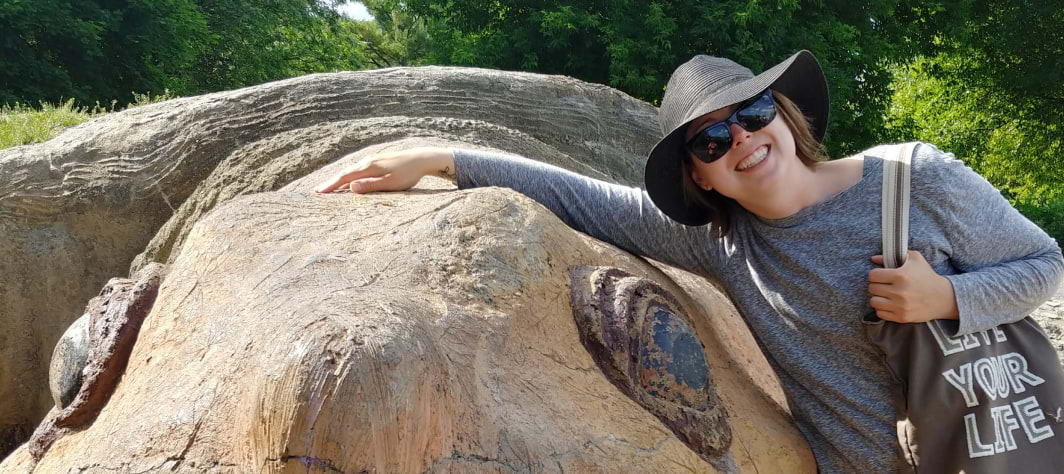
Fast-forward a few years: I graduated nursing school, got married, and had children. I continued to put my ADPKD on the back burner, rarely even thinking about it, honestly. I had seen a few different doctors over the years, but there weren’t really any treatment options available. It wasn’t until my endocrinologist asked what I had been doing for my ADPKD that I actually took action. She recommended a nephrologist who, during my first appointment, suggested that I was a good candidate for a treatment called JYNARQUE® (tolvaptan), which was new at the time. At my next appointment, he informed me that the tests he ordered showed my ADPKD was rapidly progressing.
My nephrologist explained that a patient of his had seen successful results in the clinical trial for JYNARQUE, so he was familiar with the treatment. He told me that JYNARQUE may slow my kidney function decline. I appreciated that he discussed JYNARQUE as a treatment option rather than something I had to do. Instead, he provided me with the information I needed and made me feel like the decision was collaborative. But I’ll admit that when my nephrologist presented me with the most serious side effects, such as potentially fatal liver problems, I started to get a little hesitant. My doctor also told me that because JYNARQUE can cause serious liver problems, I would need regular blood work to monitor my liver function. He enrolled me in the JYNARQUE Risk Evaluation and Mitigation Strategy, or REMS, a program to help me keep track of my blood work. With a demanding work schedule as a nurse, I was nervous about the side effects of being thirsty and having to urinate frequently. It’s not really a job where you can go to the bathroom or drink water whenever you want. But as I was looking through all the material about the treatment, I thought of my kids. For many years, there weren’t any ADPKD treatment options available, so I started to think of JYNARQUE as something that could help me fight. I want to be there for my kids.
Since starting on JYNARQUE, I’ve worked hard to maintain my health and teach my children to do the same. With my doctor’s permission, I make sure to exercise and maintain a healthy diet. But I also don’t just keep my condition or my treatment on the back burner like I did when I was younger. Now, when I go to my regular appointments with my nephrologist or any of my healthcare providers, I make sure that I’m prepared. If I have any questions or concerns that pop up during my day, I make a note on the calendar in my phone, so I remember them at the next appointment. I also try to do as much research about ADPKD as I can, and I discuss it with my doctor.
Starting JYNARQUE was the beginning of a new chapter for me. Now, I know that I am being proactive in my healthcare. I advocate for myself with my healthcare team, and I’ve learned what it means to be a fighter.
Patients were compensated for their time. Patient images reflect their health status at the time the photos and videos were taken.
Receive helpful texts and
emails with information to support conversations with your nephrologist
and healthcare team.
Speak one-on-one with
a Peer Mentor living with
rapidly progressing ADPKD
and taking JYNARQUE.
Sign up for an ADPKD
Peer Conversations webinar
to talk with people living
with ADPKD.


of REMS
in Taking JYNARQUE
Zack is living with rapidly progressing autosomal dominant polycystic kidney disease, or ADPKD, and taking JYNARQUE® (tolvaptan).
Please remember that none of the information discussed in this article should replace the conversations with your healthcare provider. Zack is sharing his own thoughts and experiences, so please keep that in mind, as your thoughts and experiences may be different.
I was formally diagnosed with rapidly progressing autosomal dominant polycystic kidney disease, or ADPKD, in my late 20s. Since then, I knew my focus would always be preserving and protecting my kidney function. The silver lining to being diagnosed in my late 20s is that I was able to take early steps to manage my kidney function through lifestyle changes and now...medication.
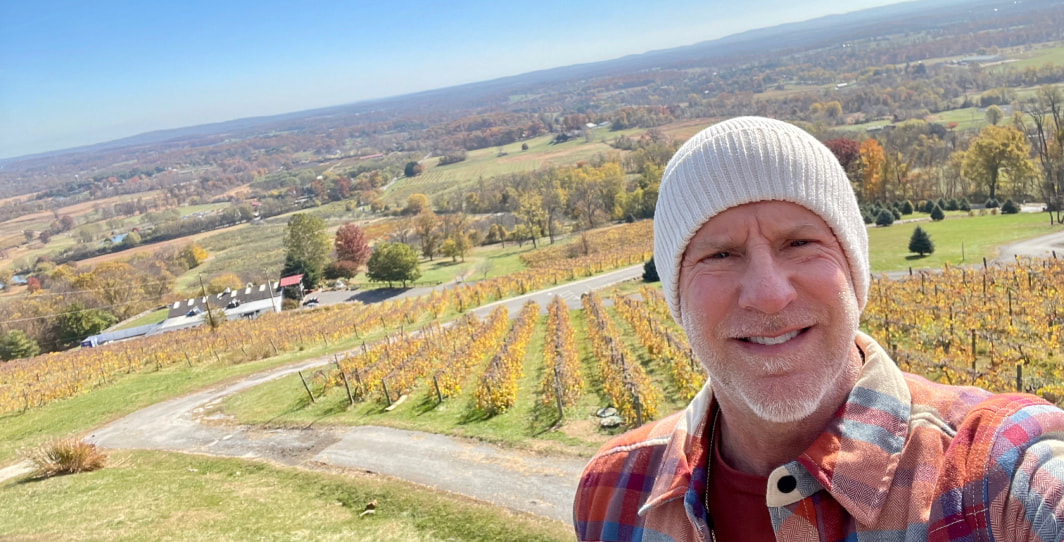
I patiently watched JYNARQUE® (tolvaptan) go through its trials and studies, hoping for it to be approved early enough in my life to make a difference. I researched JYNARQUE on my own and was able to attend an educational program, where I connected with a nephrologist, who also had a genuine interest in JYNARQUE. After meeting him, I knew that I wanted him as my nephrologist.
My nephrologist and I discussed how JYNARQUE can cause serious and potentially fatal liver problems. Other side effects include thirst and increased fluid intake, making large amounts of urine, urinating often, including throughout the night. I considered these potential side effects and still decided to try JYNARQUE because I hoped it might make a difference in my lifelong journey with ADPKD.
My doctor warned me that I would have to drink large quantities of water when taking JYNARQUE. But water is good for you, so I don’t see that as a negative consequence. Now, having to use the bathroom a lot, sure, that is! But that is more of a nuisance, and I can handle it. I look at taking JYNARQUE the same way I look at saving for retirement. By taking JYNARQUE now, I’m investing in my kidneys’ future because JYNARQUE has been shown to slow kidney function decline in adults with rapidly progressing ADPKD.
JYNARQUE is only available through the Risk Evaluation and Mitigation Strategy, or REMS program, which helps manage the risk of serious and potentially fatal liver injury that’s associated with the use of JYNARQUE. As part of the program, I have regular blood tests to monitor my liver function. I was fine with having regular blood testing because it helped my doctors and myself stay aware of the treatment’s impact on my liver function.
After starting treatment, I was monitored first at two weeks, then at four weeks, and then monthly for 18 months. Now I am only monitored every three months. It was a nice benefit of the program; if patients aren’t showing any signs of degradation to their liver functions after monthly tests, then they could transition to quarterly tests. When starting JYNARQUE, I knew about the risk of liver injury. But I felt a sense of comfort knowing my liver function was being monitored. Had the REMS program not been in place, it would have been a more difficult decision.
I was not nervous about getting my blood work done regularly. I see it as similar to taking your car in for a service appointment. They run the diagnostics on your car and figure out what needs immediate attention, or what they need to keep an eye on. My lab results are the same way. It gives me a report of how I’m doing health-wise. I’m a big fan of taking preventative measures.
Getting my blood work done is pretty convenient for me because I can have it done on my way to work, typically a week before I see my nephrologist. My work is always accommodating with it.
I’m happy that the REMS program exists. It’s the first time I’ve ever been on a medication that comes with an expectation of continual monitoring. I see it as a good thing, as it provides confidence that I am getting the help and support I need.
Patients were compensated for their time. Patient images reflect their health status at the time the photos and videos were taken.
Receive helpful texts and
emails with information to support conversations with your nephrologist
and healthcare team.
Speak one-on-one with
a Peer Mentor living with
rapidly progressing ADPKD
and taking JYNARQUE.
Sign up for an ADPKD
Peer Conversations webinar
to talk with people living
with ADPKD.


Is Power
Bill is living with rapidly progressing autosomal dominant polycystic kidney disease, or ADPKD, and taking JYNARQUE® (tolvaptan).
Please remember that none of the information discussed in this article should replace the conversations with your healthcare provider. Bill is sharing his own thoughts and experiences, so please keep that in mind, as your thoughts and experiences may be different.
My grandfather, who gave me his full name, never knew that he had inherited autosomal dominant polycystic kidney disease, or ADPKD, from his father—nor that he had passed it on to both of his kids. When my grandfather died of a sudden heart attack at 44, it didn’t occur to his wife and sons that his shocking death could have had something to do with his kidneys, let alone that the same cysts were already growing in both his sons.
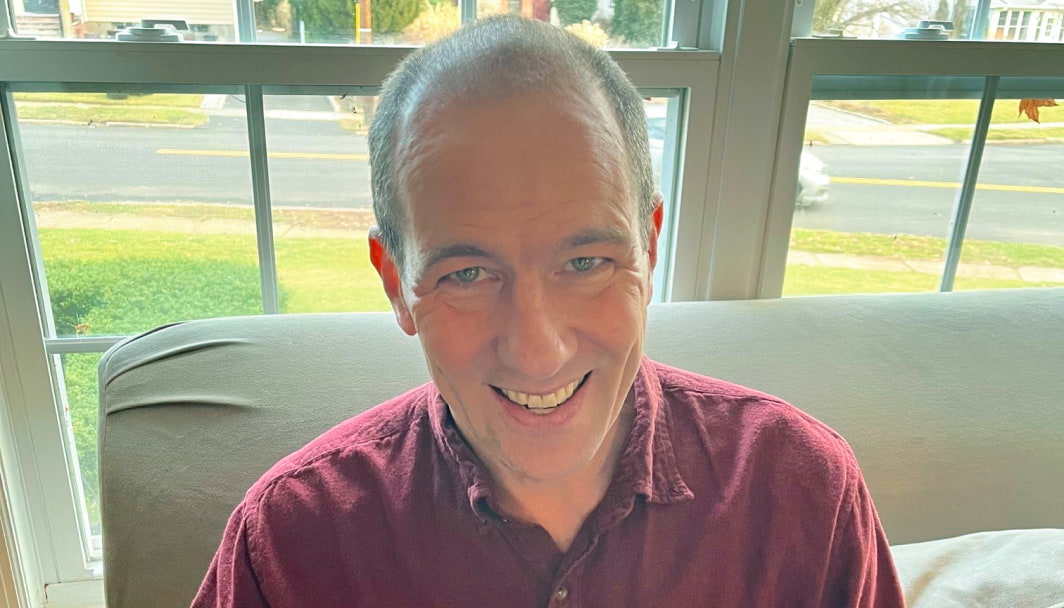
In the years after losing her husband, my grandmother Ann lost her sister-in-law and a close friend, then her oldest grandchild Michael at 35, and then her last remaining child, my Uncle Dick, at 64. All died suddenly, and all died of complications of ADPKD. My grandmother knew that five of her six grandchildren had inherited ADPKD, but all she could do was worry.
When my dad, after playing a game of pickup basketball when he was in his mid-20s, saw blood in his urine, he told his doctor. Like nearly all physicians in the 1960s, my dad’s doc knew very little about ADPKD, so when he saw cysts all over my dad’s kidneys, he decided to...scrape them. Popping those cysts sent toxins coursing through my poor dad’s bloodstream, making him sicker than he had ever been. He lay in the hospital for two weeks and said later that he had felt like he might die. His doc also misunderstood the genetics, telling my dad that any children he might have would have just a one-in-four chance of developing those cysts. And his doctor, of course, had no medicine to offer my dad to slow the cysts’ growth.
My dad’s doctor knew more than my grandfather’s doctor about what might be happening in our family—but only a little more. And none of it helped.
Today, thanks to the efforts of researchers all over the world, I know that each of my three daughters has a 50 percent chance of inheriting my cysts. More importantly, thanks to the scientists at Otsuka, I know that if one or all of them has inherited my cysts, there may be more options for them. For all of their lives, my daughters have seen me take a clinically studied, FDA-approved medicine twice a day to slow the progression of my ADPKD. They know that if they need to, they can start doing the same—and decades earlier than I did, so they have more options than I did to reduce the rate of growth and scarring.
Thanks to JYNARQUE® (tolvaptan), a prescription drug used to slow kidney function decline in adults who are at risk for rapidly progressing ADPKD, and other advances in ADPKD research, some of which I’ve been able to help support, our family’s future looks very different than its past. We know more, and can do more, than my grandfather or dad ever could. We are eternally grateful to all those who have done this work to make these treatments available.
It’s important to know that JYNARQUE can cause serious liver problems that can lead to the need for a liver transplant or can lead to death and is only available through a restricted distribution program called the JYNARQUE Risk Evaluation and Mitigation Strategy (REMS) program. The most common side effects of JYNARQUE are: thirst, drinking a lot of water, and frequent bathroom visits.
Patients were compensated for their time. Patient images reflect their health status at the time the photos and videos were taken.
Receive helpful texts and
emails with information to support conversations with your nephrologist
and healthcare team.
Speak one-on-one with
a Peer Mentor living with
rapidly progressing ADPKD
and taking JYNARQUE.
Sign up for an ADPKD
Peer Conversations webinar
to talk with people living
with ADPKD.


Children in an ADPKD Family
Shellie is living with rapidly progressing autosomal dominant polycystic kidney disease, or ADPKD, and taking JYNARQUE.
Please remember that none of the information discussed in this article should replace the conversations with your healthcare provider. Shellie is sharing her own thoughts and experiences, so please keep that in mind, as your thoughts and experiences may be different.
Having a child who is diagnosed with autosomal dominant polycystic kidney disease (ADPKD) can change a parent’s life. It can also change the lives of any other children you may have. ADPKD might only be diagnosed in one person, but it affects the whole family.
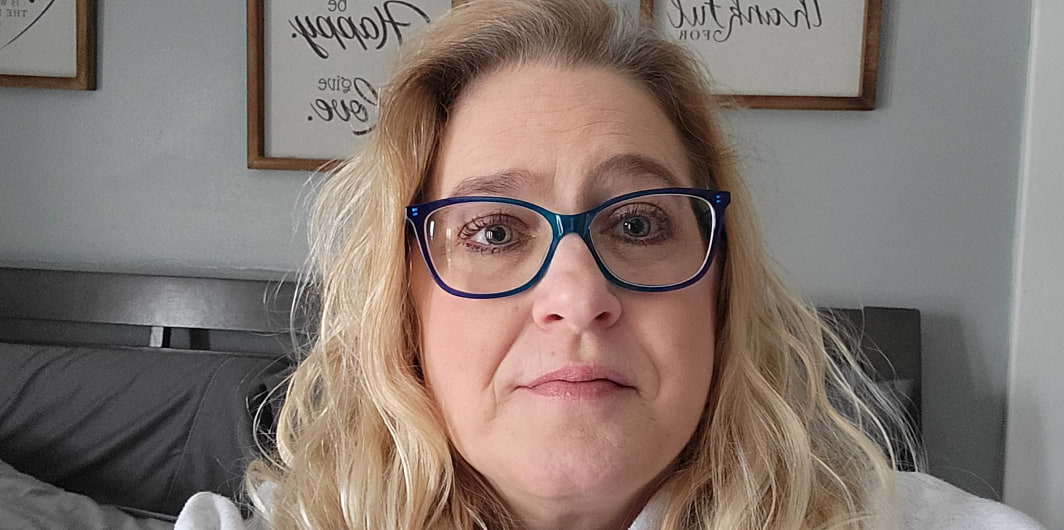
As the mom of a daughter with ADPKD, I never wanted my kids to feel different from each other, and I did my best to raise them that way. We love all our children, but we love them all in unique ways.
Explaining Kate’s diagnosis to her siblings was something that I didn’t do right away. I waited to explain to my children what ADPKD was and that Kate had it until they were a bit older, to make sure they could better understand what it meant to have the disease.
As Kate was growing up, she had limits to help her avoid injuring her kidneys. Some of those limitations meant finding things that Kate could do without putting her health at risk. While my son played hockey, Kate and her sister participated in 4-H, which encourages leadership and responsibility.
Throughout Kate’s childhood, she had a lot of appointments and tests. Sometimes, it seemed overwhelming even though they were just routine monitoring and testing. To make these days easier for all of the kids, I would take Kate and her siblings to places that we could all enjoy, such as the zoo, shopping, a picnic, or any other fun place that they all wanted to go to. It gave us something to look forward to.
Kate’s siblings started understanding her disease more as they got older. They respected her limitations by including her in activities that were safe and fun for her. They encouraged Kate to stay healthy. ADPKD truly is a disease that affects the whole family.
As a mom, I did my best to keep all my kids healthy, happy, and safe. ADPKD may have only been diagnosed in one of my children, but it was a part of all three of their lives.
Patients were compensated for their time. Patient images reflect their health status at the time the photos and videos were taken.
Receive helpful texts and
emails with information to support conversations with your nephrologist
and healthcare team.
Speak one-on-one with
a Peer Mentor living with
rapidly progressing ADPKD
and taking JYNARQUE.
Sign up for an ADPKD
Peer Conversations webinar
to talk with people living
with ADPKD.


Kate is living with rapidly progressing autosomal dominant polycystic kidney disease, or ADPKD, and taking JYNARQUE® (tolvaptan).
Please remember that none of the information discussed in this article should replace the conversations with your healthcare provider. Kate is sharing her own thoughts and experiences, so please keep that in mind, as your thoughts and experiences may be different.
Simplicity: The sole word that comes to mind when trying to explain autosomal dominant polycystic kidney disease (ADPKD) to a child.
Because of who I am and who is in my life, I am forced to ask myself: In what ways can I share my diagnosis in a manner that is easy to comprehend? I was diagnosed with ADPKD when I was only 14 months old, so I know how difficult it is to understand this disease as a child. That’s why I think it is so important that I have strategies for explaining it to the people in my life, of all ages.
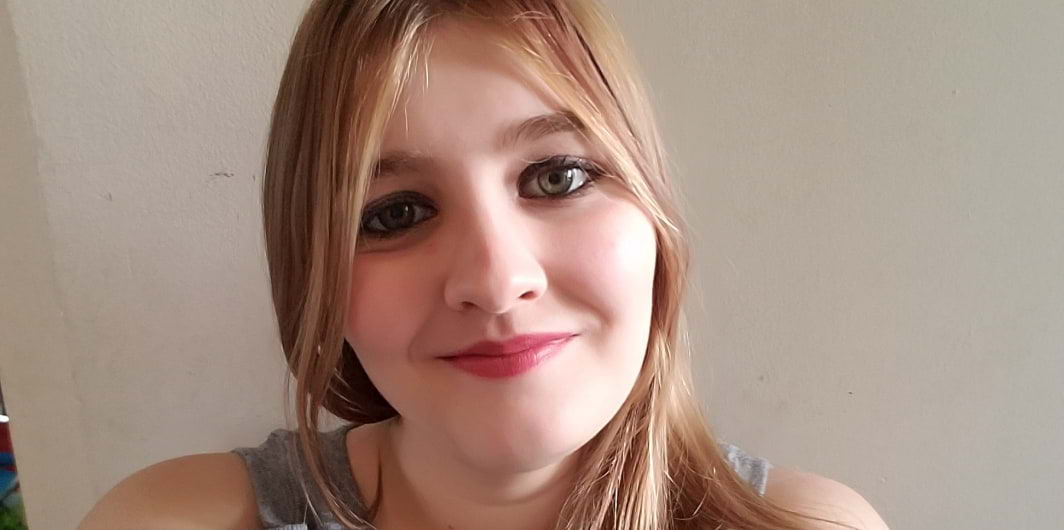
How can I tell my nephew, or any child for that matter, what ADPKD is? How do I explain cysts? In what ways can I describe my kidney function or my kidney size? How do I address why I’m missing events to go to appointments or why I can’t play “rocket ship in the air”? What do I say when I’m asked why I am tired or sore? And what words should I use when I’m asked why I use the bathroom so frequently or drink as much water as I do?
Simplicity comes to my mind and sits there for a moment before it finally hits me.
For my young nephew and other children, it came with careful consideration of their age. I had to use words that I knew would both make sense to anyone. So, when describing my diagnosis when my nephew was three or four years old, I would simply say this: “I have inside owies.”
As he got older, I explained that my inside owies are a part of my body that you can’t see. I tell them that there are things called kidneys, and they are similar to a big bean that has bubbles filled with liquid. These bubbles, I explain, can pop, and they can hurt. I also mention that my inside owies can grow, which is why I feel sick or hurt at times.
When explaining ADPKD to anyone young who might not understand what the disease is, you have to tread lightly. From personal experiences explaining to my nephew, and even when I was a child myself, ADPKD was a topic that needed to be addressed in a way that could be understood.
When it comes to explaining why I missed a school event or why I can’t play certain games for reasons related to ADPKD, such as appointments or testing, I first apologize for missing out. Then I explain that I have to make sure I’m healthy so that I can play other games and come to other school events later. Also, I have to take small breaks so I can play longer and keep up with others.
Now that my nephew is a bit older, he can understand more complex concepts. Discussing ADPKD has switched from choosing simple and accessible words to using more accurate terms like “kidney” and “cyst.” I can tell him now that the reason I have to use the bathroom so frequently is so that I can “flush” out some of the things in my body. With a bit more ease, I can tell children that I am different and have reasons for being different.
For anyone who has ADPKD or has a loved one who has been diagnosed, we are all different and unique. We all have our own stories. When you decide to share what ADPKD is and what it means to you, choose your words not only with your audience in mind but also how to make them understandable for yourself. Your doctor may be able to help both understand and be able to explain ADPKD to your loved ones.
Even though it can be difficult to talk about ADPKD, it is still worth sharing your story with others. And that’s the truth in its simplicity.
Patients were compensated for their time. Patient images reflect their health status at the time the photos and videos were taken.
Receive helpful texts and
emails with information to support conversations with your nephrologist
and healthcare team.
Speak one-on-one with
a Peer Mentor living with
rapidly progressing ADPKD
and taking JYNARQUE.
Sign up for an ADPKD
Peer Conversations webinar
to talk with people living
with ADPKD.


With Your Healthcare Team
Fernando is living with rapidly progressing autosomal dominant polycystic kidney disease, or ADPKD, and taking JYNARQUE.
Please remember that none of the information discussed in this article should replace the conversations with your healthcare provider. Fernando is sharing his own thoughts and experiences, so please keep that in mind, as your thoughts and experiences may be different.
When I was a sophomore in college, I organized a blood drive. When it was my turn to donate, the nurse became so alarmed by how high my blood pressure was, she threatened to drive me to the emergency room herself. Not long after, a nephrologist diagnosed me with rapidly progressing autosomal dominant polycystic kidney disease, or ADPKD. I didn’t want to worry my family or friends, so, I only said, “I was diagnosed with ADPKD, but I’m okay and I don’t want to talk about it.” That did not stop me from worrying about it, however. I was confused and shaken. The moment I heard “You have ADPKD” my life changed forever. Even though I tried not to, I spent hours thinking
When I was a sophomore in college, I organized a blood drive. When it was my turn to donate, the nurse became so alarmed by how high my blood pressure was, she threatened to drive me to the emergency room herself. Not long after, a nephrologist diagnosed me with rapidly progressing autosomal dominant polycystic kidney disease, or ADPKD. I didn’t want to worry my family or friends, so, I only said, “I was diagnosed with ADPKD, but I’m okay and I don’t want to talk about it.” That did not stop me from worrying about it, however. I was confused and shaken. The moment I heard “You have ADPKD” my life changed forever. Even though I tried not to, I spent hours thinking and worrying about
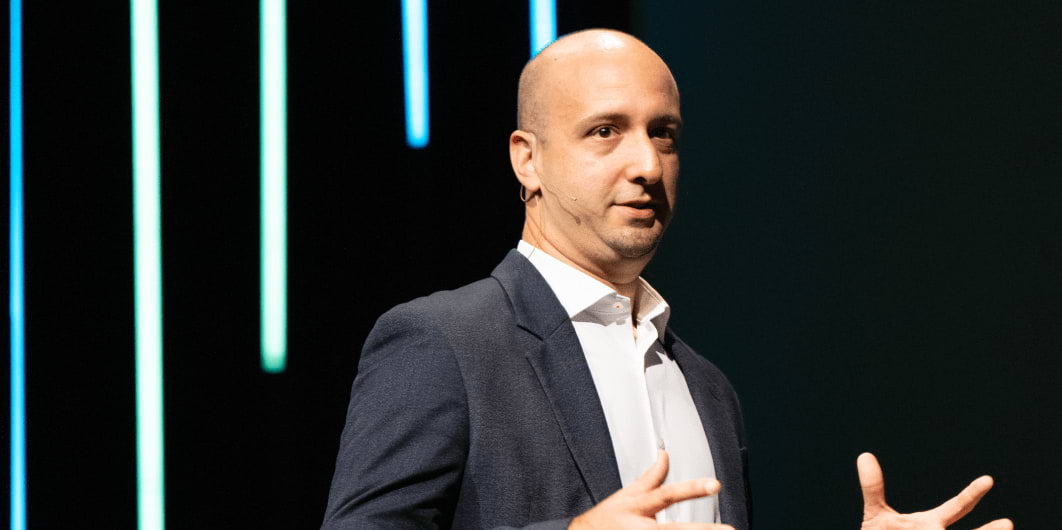
my kidneys. For years, I looked at every decision through the lens of my ADPKD worries. Semi-joking, my nephrologist suggested I switch to worrying about my stomach—because changing my diet was an important part of managing ADPKD. But I was fixated. And by not sharing my worries, I let my kidneys control my whole life in an unhealthy way.
and worrying about my kidneys. For years, I looked at every decision through the lens of my ADPKD worries. Semi-joking, my nephrologist suggested I switch to worrying about my stomach—because changing my diet was an important part of managing ADPKD. But I was fixated. And by not sharing my worries, I let my kidneys control my whole life in an unhealthy way.
Thankfully, I have always had a great relationship with my healthcare team: a nephrologist, a urologist, and a nutritionist. I have always been open and communicative with my healthcare providers. It’s important to me that we be able to work together. This is especially true when it comes to managing my life with ADPKD. From the beginning, my nephrologist shared all her contact information with me and encouraged me to reach out to her via phone, email, and apps whenever I have questions or problems. Knowing she is there for me 24/7 means a lot.
My healthcare team also communicates well with each other about my case. I want everyone involved in my care to know about any changes or findings in my lab results, so they have time to consult with one another, if necessary, before and after discussing things with me. So, I do my part to help ensure they stay up to date by bringing important information with me during our appointments.
Good communication with my healthcare team has helped me at every step in my ADPKD journey—from diagnosis to finding and staying on treatment. My doctors share their knowledge with me, and I talk with them about any research and information I’ve come across. That way, I feel confident that I’m making informed decisions about my ADPKD care. Early on, my nephrologist told me she was keeping an eye on clinical trial results for a treatment called tolvaptan which she thought might be a good fit for me. So, I started following the research as well. Then the FDA approved JYNARQUE® (tolvaptan) for adults who are at risk for rapidly progressing ADPKD. To me, it felt as if a window of hope was opened. JYNARQUE was a treatment that might help slow my kidney function decline. My nephrologist and I discussed the serious side effects of JYNARQUE, including the risk of serious and potentially fatal liver injury. I appreciated that there was a required plan, known as the JYNARQUE Risk Evaluation and Mitigation Strategy, or REMS Program, to closely monitor my liver function through regular blood tests. We also talked about the more common side effects, including increased thirst and frequent urination.
Over time, I’ve realized that open communication about my ADPKD diagnosis gives me a great and inexplicable sense of relief. Sharing information with my healthcare team, of course, is essential. But sharing ADPKD information with my family and others offers me another opportunity: Setting a good example—especially for my young son. He and my wife are the lights of my life and my motivation to fight for my health and smile every day. Now I wake up every day with a good feeling, knowing that my healthcare team and I are taking an active approach to help manage my ADPKD. ADPKD changed my life, but now I choose to share my diagnosis to help change others’ lives.
So, I encourage everyone to find a healthcare team you can work closely with. And I offer three pieces of advice: Stay strong, stay positive, and make them all wonder how you are still smiling.
Patients were compensated for their time. Patient images reflect their health status at the time the photos and videos were taken.
Receive helpful texts and
emails with information to support conversations with your nephrologist
and healthcare team.
Speak one-on-one with
a Peer Mentor living with
rapidly progressing ADPKD
and taking JYNARQUE.
Sign up for an ADPKD
Peer Conversations webinar
to talk with people living
with ADPKD.


Evelynn is living with rapidly progressing autosomal dominant polycystic kidney disease, or ADPKD, and taking JYNARQUE.
Please remember that none of the information discussed in this article should replace the conversations with your healthcare provider. Evelynn is sharing her own thoughts and experiences, so please keep that in mind, as your thoughts and experiences may be different.
I have a lot in common with my family—more than a name, or looks, or quirks. Autosomal dominant polycystic kidney disease (ADPKD) runs on my mother’s side of the family. She and her brother inherited it from their mother.
My immediate family started learning about ADPKD in the late ’90s and early 2000s after I was diagnosed by my pediatric nephrologist, and my mother had a positive ultrasound. That was the time before Google, so we received most of our knowledge from our physicians over the years.
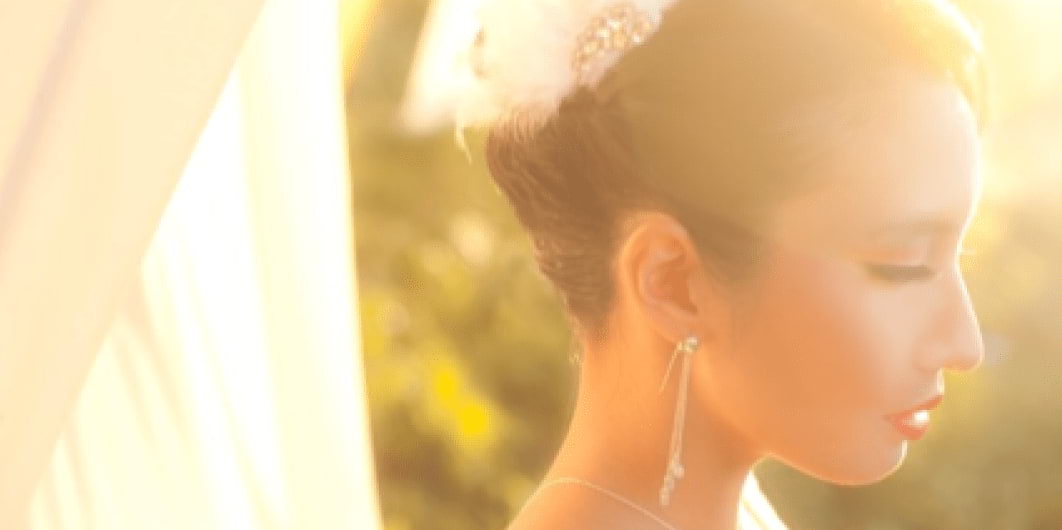
My family has shaped the way I approach ADPKD and my future. In order to do most of the things I wanted to do in life and still be able to care for my mother, I sacrificed having a family of my own. I absolutely love my mother and have no regrets at all. Similarly, I did not want a husband to have to be my caretaker. I commend all those husbands, wives, and children already out there taking care of their loved ones, but this was a very personal decision that I needed to make for myself.
Living with ADPKD can be very hard. It is a lot of work and stress for an individual to keep up with all the medicines, diet restrictions, and exercises to maintain emotional well-being. When your family member also has ADPKD, and you are a caretaker, that work increases sometimes. They may be in a different stage of the disease and trying to juggle aspects of life, compartmentalize the disease, and keep moving forward. This is when we must support each other the most. It can feel scary. But, with the help of my family, I am able to persevere and enjoy my life to its fullest.
I try to think about how I would like to be talked to, cared for, and loved. I think, How can I make the best of these moments by being present enough to cherish every second? It’s like holding onto every moment for as long as you can. I read about grieving the loss of someone before you have actually lost them. This can take place over days, years, and, in our case, decades. So, it’s a bit of an art to think of things you can do together to support each other through different stages of the disease. And support does look different through each stage. What someone might need now is not what they could need in a few years’ time. But by being there, focused on their health, well-being, and happiness, I am able to better the lives of my family members, which brings me immense joy.
Although it is difficult, I try to focus on living in the “now” and not think too far into the future. I’m encouraged by medical advances and current results related to my lifestyle and treatment. I’m grateful for my time with my family and for being able to be there for them. Who knows what the future will hold! All we can do is be there to meet it.
Patients were compensated for their time. Patient images reflect their health status at the time the photos and videos were taken.
Receive helpful texts and
emails with information to support conversations with your nephrologist
and healthcare team.
Speak one-on-one with
a Peer Mentor living with
rapidly progressing ADPKD
and taking JYNARQUE.
Sign up for an ADPKD
Peer Conversations webinar
to talk with people living
with ADPKD.


Resources for You
Shawn is living with rapidly progressing autosomal dominant polycystic kidney disease, or ADPKD, and taking JYNARQUE.
Please remember that none of the information discussed in this article should replace the conversations with your healthcare provider. Shawn is sharing his own thoughts and experiences, so please keep that in mind, as your thoughts and experiences may be different.
When I was diagnosed in 2008 with autosomal dominant polycystic kidney disease (ADPKD) by my primary care physician, I had never heard of the disease, had very little information to go on, and ultimately was confused as to whether I should be concerned. I retained the services of a nephrologist to hopefully gather more information about how this disease would affect my future. Unfortunately, this doctor had very little information about ADPKD or its treatment options, as his main focus was on chronic kidney disease. In addition, it seemed like there was little information within the ADPKD patient community as well.
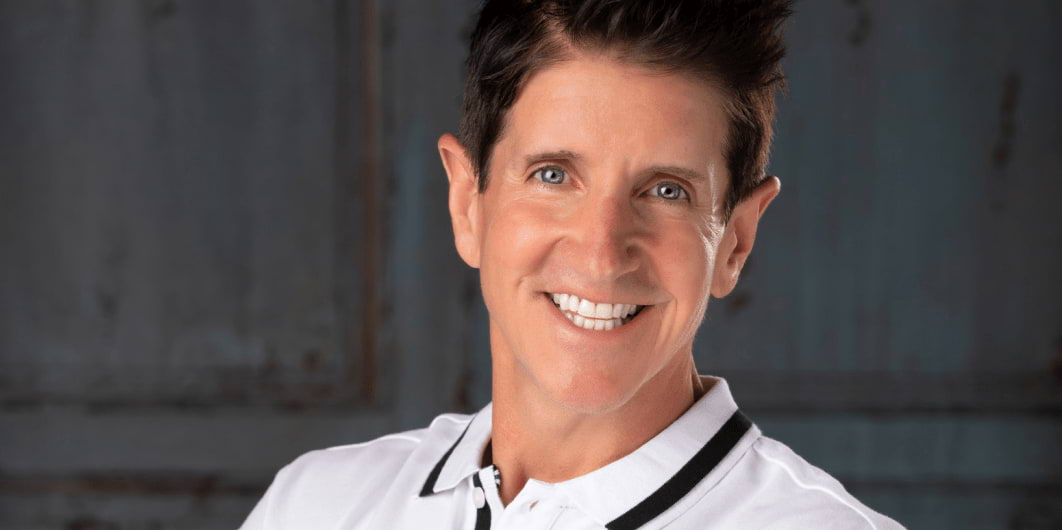
After my diagnosis, I definitely went through a period of denial. It took some time to get through my head that this was my new reality. I needed to educate myself and start making lifestyle changes. Moving into a phase of acceptance, I refused to play the victim and chose to take matters into my own hands. Most people with this chronic disease inherit it from someone in their family, but for me, it truly came out of nowhere. Since I didn’t really have anyone to go to for information, I used the Internet as a guide. One of the online support groups I found at the time was the PKD Foundation. They have support chapters across the country where PKD patients and advocates can get together to participate in community events. Although I connected with an ADPKD support group, it didn’t provide me with new information. I realized that I didn’t know how to contribute, so I stopped participating. Instead, I decided to put my focus and energy into the ADPKD clinical trials. I participated in two trials, the second of which included JYNARQUE® (tolvaptan), a treatment that showed evidence of slowing kidney function decline in adults with rapidly progressing ADPKD. The most common side effects of JYNARQUE are an increase in thirst and frequent urination. Because JYNARQUE can cause serious and potentially fatal liver problems, regular blood work is required for me to monitor my liver function. JYNARQUE Risk Evaluation and Mitigation Strategy, or REMS, program is there to help patients like me to keep them on track with their blood work. In the JYNARQUE trial, I was exposed to researchers, geneticists, and case nurses—people who knew ADPKD and were passionate about treatment options. It was then that I felt like I was finally contributing to the advancement of understanding this disease and doing my part for the community of ADPKD patients.
When I was diagnosed, there wasn’t a ton of information out there about ADPKD, but that is changing. Awareness and focus seem to have some momentum behind them. For example, I am seeing nutritional supplement companies and renal dietitians starting businesses focused on the ADPKD diet, including holding online classes and creating cookbooks for healthier diet suggestions. General online resources have improved as well! The PKD Foundation, JYNARQUE website, and some social media sites are a few options I have used to find more information about my disease and treatment options. However, I will warn readers that even with the amount of ADPKD information on the rise, there is also a certain amount of misinformation and speculation on the internet, especially on certain social media platforms.
In addition, I sometimes participate in JYNARQUE Peer Mentoring sessions where I speak to patients who are considering this treatment but want a real-world opinion from someone who has been on this medication. I think doing this helps patients when it comes to considering possible side effects or lifestyle changes with a new treatment.
Patients were compensated for their time. Patient images reflect their health status at the time the photos and videos were taken.
Receive helpful texts and
emails with information to support conversations with your nephrologist
and healthcare team.
Speak one-on-one with
a Peer Mentor living with
rapidly progressing ADPKD
and taking JYNARQUE.
Sign up for an ADPKD
Peer Conversations webinar
to talk with people living
with ADPKD.


Nancy is living with rapidly progressing autosomal dominant polycystic kidney disease, or ADPKD, and taking JYNARQUE.
Please remember that none of the information discussed in this article should replace the conversations with your healthcare provider. Nancy is sharing her own thoughts and experiences, so please keep that in mind, as your thoughts and experiences may be different.
My life with autosomal dominant polycystic kidney disease (ADPKD) has had so many avenues and detours, U-turns and challenges. I have been blessed with excellent care and support from physicians, pharmacists, lab techs, and more. But most important has been the support of my family.
When I was diagnosed, it was very unexpected. I was 53 years old and was completely blindsided by this revelation. I searched our family history for the DNA correlation. My brother remembered that our sister had kidney issues when she was younger. She had been given a
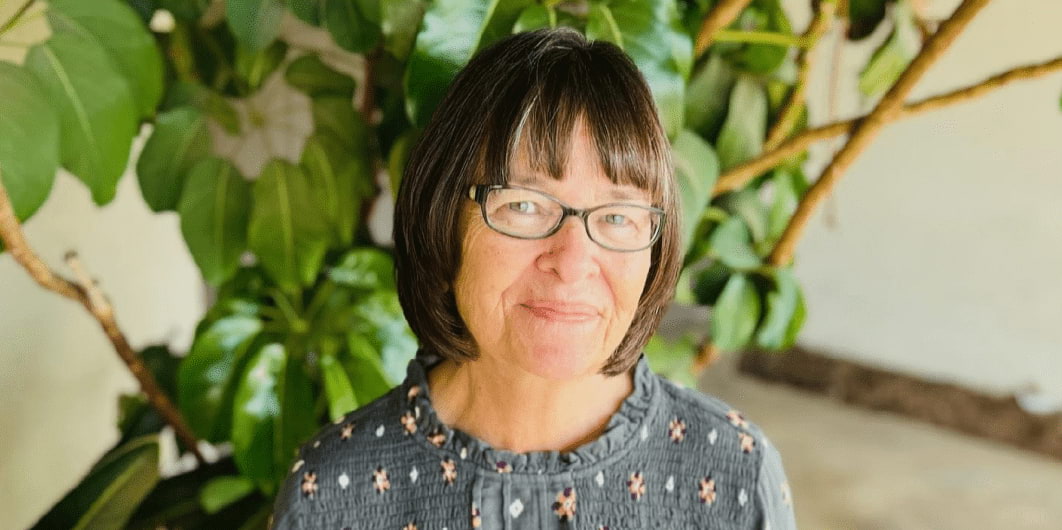
When I was diagnosed, it was very unexpected. I was 53 years old and was completely blindsided by this revelation. I searched our family history for the DNA correlation. My brother remembered that our sister had kidney issues when she was younger. She had been given a diagnosis of kidney disease and was told that there was nothing they could do for it. A year before my diagnosis, my sister passed away from what was thought to have been a heart condition. We didn’t have any conclusive answers, and no other family member recalled this diagnosis.
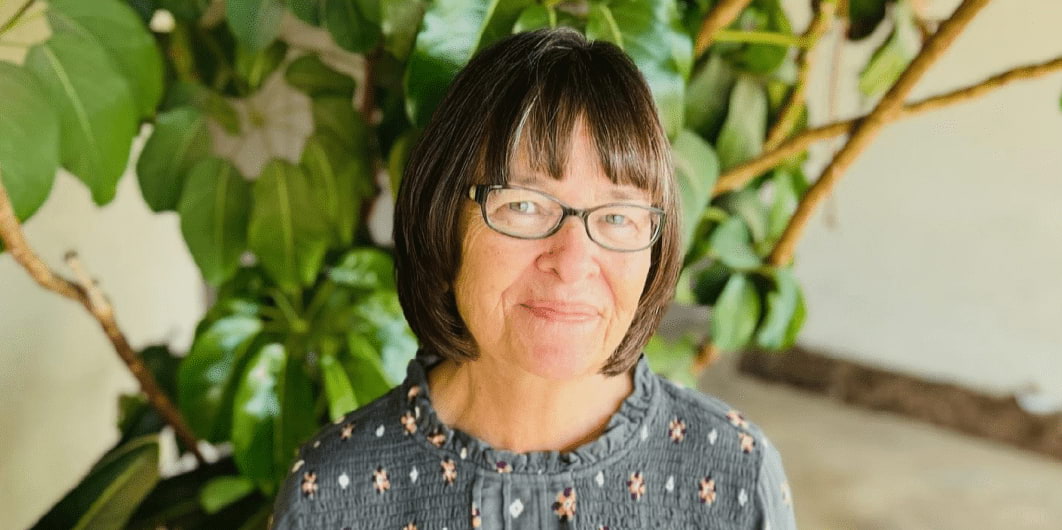
My focus then turned from my own concerns to those of my six children. This diagnosis could potentially affect them and subsequent generations. The guilt I felt was, at times, overwhelming. I had to remind myself that I was not in control and there was nothing I could have done to prevent this. These wonderful people were adults, some with children of their own, in the midst of launching their careers or going off to college. With a great deal of prayer and God’s grace, I summoned courage and was able to tell them. Their responses were loving and full of hope. I was deeply humbled and grateful for this wonderful family I had been given.
My children and I discussed the possible genetic occurrences and symptoms that could indicate a problem. I encouraged them to discuss this family diagnosis with each of their physicians, as there is a 50% chance of ADPKD being passed on genetically. They took my advice, and each of them have been evaluated for the disease.
Three of my children have since been diagnosed with ADPKD, and one of them is now taking JYNARQUE® (tolvaptan). Before starting treatment, they were told that JYNARQUE can cause serious liver problems, so because of that, they would need to monitor their liver function through the Risk Evaluation and Mitigation Strategy (REMS). They were also told of JYNARQUE's most common side effects, which include increased thirst and frequent urination. The other three have declared themselves as potential kidney donors. Before the diagnosis, I was already incredibly proud of each one of them. Now, 16 years later, I am more so. I love watching them continue with their life plans, not allowing ADPKD to disrupt their journeys. Yes, there have been difficulties, but greater than these are the bonds that hold us together. Every one of them has a strong faith that will see them through tough times and a love for others that propels them forward. I am grateful and blessed by each of their walks.
My only regret is not being able to be there for my dear sister. If she had the care that I have been so fortunate to have, I am sure she would have lived a more comfortable life, filled with the same love and support I have enjoyed.
Patients were compensated for their time. Patient images reflect their health status at the time the photos and videos were taken.
Receive helpful texts and
emails with information to support conversations with your nephrologist
and healthcare team.
Speak one-on-one with
a Peer Mentor living with
rapidly progressing ADPKD
and taking JYNARQUE.
Sign up for an ADPKD
Peer Conversations webinar
to talk with people living
with ADPKD.


Tracy is living with rapidly progressing autosomal dominant polycystic kidney disease, or ADPKD, and taking JYNARQUE.
Please remember that none of the information discussed in this article should replace the conversations with your healthcare provider. Tracy is sharing her own thoughts and experiences, so please keep that in mind, as your thoughts and experiences may be different.
My mom was one of nine children in her family—yes, nine—and was one of the six of her siblings who was diagnosed with autosomal dominant polycystic kidney disease (ADPKD). She didn’t talk about it too much while I was growing up. That is, until her brother (my uncle) needed a kidney transplant. Soon thereafter, my aunt needed one too, and the dominos started to fall.
So, when my mom’s kidneys started to fail around 2007, I started to do my own research on ADPKD to learn more about my mother’s condition and how to best help her in any situation. Little did I know, I was researching what was soon to be my diagnosis.
I was diagnosed with ADPKD when I was 33 years old after undergoing CT scans and evaluations to determine whether or not I would be an ideal donor for my mother. Because of my previous research and discussions with my doctor, I was largely educated on the condition. I also found wonderful support through another ADPKD patient who happened to be the wife of a good friend of mine—the kind of support I know would help other ADPKD patients.
The ADPKD community is one of the most important tools you can use if you or a loved one is diagnosed with ADPKD. I’ve participated in mentor calls and have started an advocacy network. These have allowed me to connect with other patients to learn about their experiences to apply to my daily life. Having these connections has helped so much throughout my ADPKD journey.
My mother unfortunately passed away in 2022, but I’m blessed to have learned so much from her—not just about ADPKD—but about how to live your life to the fullest. My mom did her best to educate and support me, so I intend on filling those large shoes and attempting to do the same for others.
Be your own advocate, learn more about your condition, find support, and support others.
Thank you.
Patients were compensated for their time. Patient images reflect their health status at the time the photos and videos were taken.
Receive helpful texts and
emails with information to support conversations with your nephrologist
and healthcare team.
Speak one-on-one with
a Peer Mentor living with
rapidly progressing ADPKD
and taking JYNARQUE.
Sign up for an ADPKD
Peer Conversations webinar
to talk with people living
with ADPKD.


Joseph is living with rapidly progressing autosomal dominant polycystic kidney disease, or ADPKD, and taking JYNARQUE.
Please remember that none of the information discussed in this article should replace the conversations with your healthcare provider. Joseph is sharing his own thoughts and experiences, so please keep that in mind, as your thoughts and experiences may be different.
How can I treat and manage my autosomal dominant polycystic kidney disease, or ADPKD…work, travel, and have a social life…with minimal anxiety and stress? This seemed like an impossible task filled with barriers and “what-ifs?” when I started my journey with ADPKD. I would like to share some tips that worked for me and might be helpful for you.
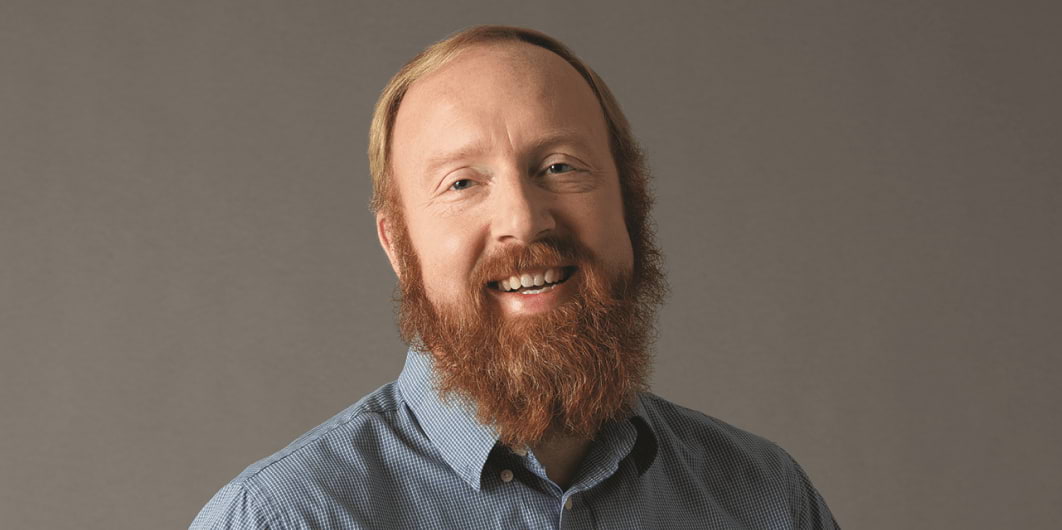
Find a regimen that works for you.
When my doctor prescribed JYNARQUE® (tolvaptan)—which could help slow kidney function decline in adults at risk of rapidly progressing ADPKD—we first discussed the risks and benefits. He explained that I would have to enroll in the JYNARQUE Risk Evaluation and Mitigation Strategy program to monitor for any potential liver damage due to the risk of serious and potentially fatal liver problems while using JYNARQUE. He also explained the common side effects, which include thirst, increased fluid intake, making large amounts of urine, urinating often, and urinating at night.
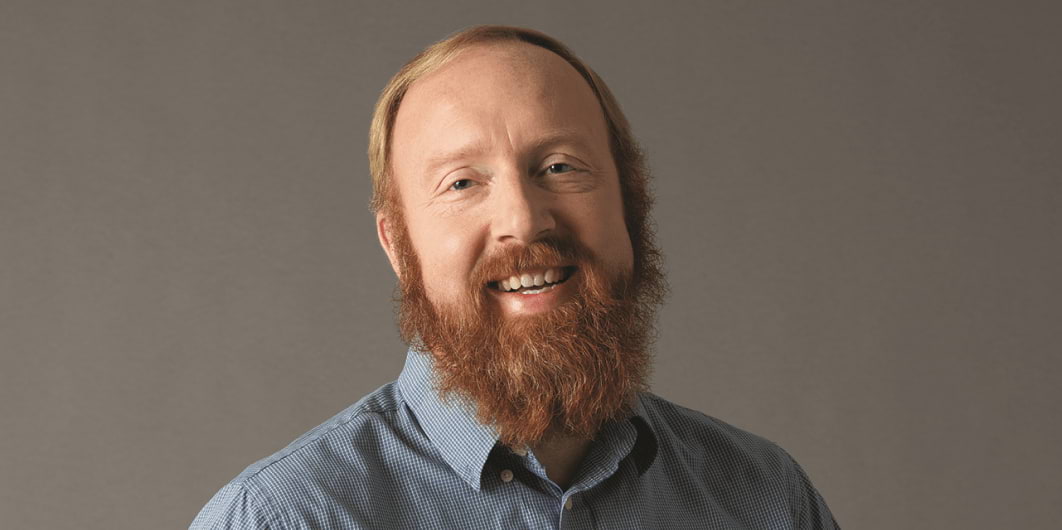
For me, I like to go about my day worrying less about needing to use the restroom. I consulted with my physician, and we have found that what works best for me is to take my first dose the moment I wake up. I take the first dose of JYNARQUE when I get up in the morning, or even 30 or 60 minutes before I crawl out of bed. This allows me to have less disruption for restroom breaks later in the morning. The second advantage of taking the first dose early is that you can take the second dose very early in the afternoon, eight hours later. This can cause less disruption to your evening sleep schedule and may allow you to get up only a few times to use the restroom at night. This is just my experience and yours may be different.
Invest in some good quality water bottles.
Water is going to be your best friend. I use a combination of tumbler-style cups with lids, a sealed bottle, and a backpack bladder-style hydration system when I want to be hands-free. I also leave a gallon jug of water in my vehicle at all times to refill when I don’t have access to clean water.
There can be a great deal of uncertainty that goes with making sure you have the access to a restroom and water that you need. This can be relieved by planning ahead and giving yourself the appropriate accommodations. I have found that, over the years, my bladder has seemed more flexible. I might be slightly uncomfortable, but I can wait a little bit to find a restroom.
In my view, for me, the first year or so on any new treatment is the hardest because my body is adjusting to change and I'm developing new habits. Over time, your confidence will build. Remember to be kind to yourself and never give up. With some discipline and determination, we have the power to impact the progression of our ADPKD.
Patients were compensated for their time. Patient images reflect their health status at the time the photos and videos were taken.
Receive helpful texts and
emails with information to support conversations with your nephrologist
and healthcare team.
Speak one-on-one with
a Peer Mentor living with
rapidly progressing ADPKD
and taking JYNARQUE.
Sign up for an ADPKD
Peer Conversations webinar
to talk with people living
with ADPKD.


Erika is living with rapidly progressing autosomal dominant polycystic kidney disease, or ADPKD, and taking JYNARQUE.
Please remember that none of the information discussed in this article should replace the conversations with your healthcare provider. Erika is sharing her own thoughts and experiences, so please keep that in mind, as your thoughts and experiences may be different.
There has been one constant in my life—change. I’m always adapting. Before I was diagnosed with autosomal dominant polycystic kidney disease, or ADPKD, I would travel back and forth from the United States to Mexico City, where I’m originally from, to visit my family. When I met my Canadian husband, we had the opportunity to live in different parts of the world—Miami, Paris, Denmark, San Francisco, and currently, Pennsylvania. Moving every two years has been exciting and full of change. The biggest change I went through was when my mother passed away from kidney failure due to her ADPKD. I knew that I didn’t want to go down the same route my mother did. When I moved to Pennsylvania, I met a new nephrologist who mentioned there was a medication that might work for me. After years of seeing different nephrologists, and being told to eat healthy, exercise, and monitor my blood pressure, I was happy to hear that there was a treatment option that could slow the progression of my ADPKD.
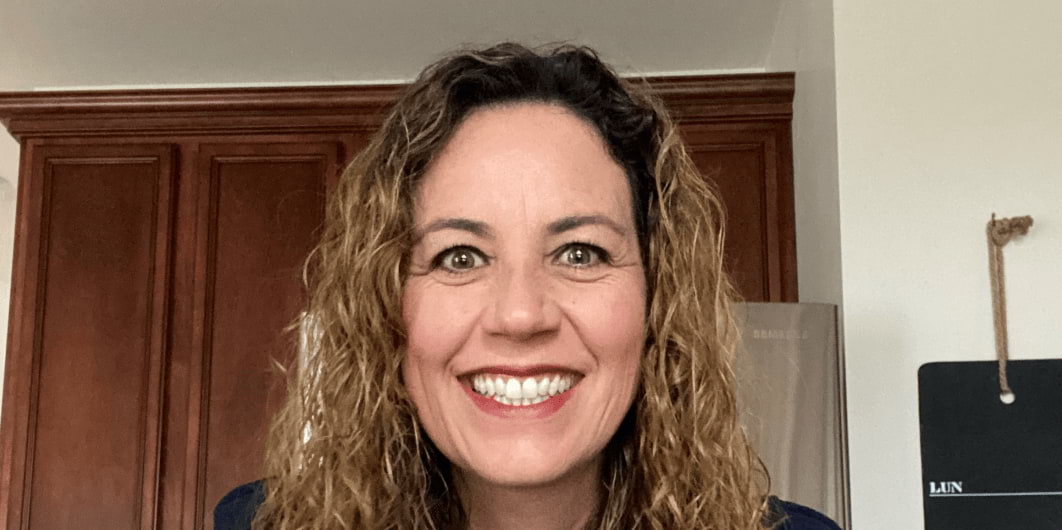
my mother passed away from kidney failure due to her ADPKD. I knew that I didn’t want to go down the same route my mother did. When I moved to Pennsylvania, I met a new nephrologist who mentioned there was a medication that might work for me. After years of seeing different nephrologists, and being told to eat healthy, exercise, and monitor my blood pressure, I was happy to hear that there was a treatment option that could slow the progression of my ADPKD.
I knew that my disease was rapidly progressing, so when my doctor mentioned JYNARQUE® (tolvaptan), I was excited, but starting medication comes with weighing the risks and benefits. He told me that JYNARQUE can cause serious and potentially fatal liver problems, so it is important to adhere to scheduled checkups to assess liver function. My doctor also explained to me that the most common side effects of JYNARQUE are thirst and increased fluid intake, making large amounts of urine, urinating often, and urinating at night.
I went home and shared the news with my husband. He was very excited that there was a treatment option for my ADPKD. And of course, when I told my dad and sister, they were really happy to hear it and full of hope. I did some research, read the material, understood the risks, discussed it with my husband, and decided that I would try JYNARQUE. I then went back to my doctor to discuss starting the medication.
I did experience some side effects like thirst, so I always kept a water bottle on hand. I also experienced frequent urination which could be challenging. It’s not easy to find a bathroom all the time! But please remember, this is just my experience, and yours may be different. You should talk to your healthcare provider to see if JYNARQUE is right for you.
I feel like I’ve gotten pretty good at adapting to change throughout my life. Adapting to life on JYNARQUE has come with some changes to my lifestyle and daily routine. Now, I take one pill in the morning during breakfast and a second one eight hours later. I have an alarm on my phone because sometimes I lose track of time, so it’s a helpful reminder, especially when the family and I are traveling. We normally go to Canada or Mexico for our vacations. Our kids love being immersed in our cultures. We love going to sporting events and visiting stadiums. Like I said, my husband is Canadian, so of course, we love going to hockey games and soccer matches. When we aren’t traveling, we like to settle down and play board games as a family. Personally, I love to dance and recently got back into dance fitness. Having a treatment option has given me the confidence to continue doing what I love.
Thank you.
Patients were compensated for their time. Patient images reflect their health status at the time the photos and videos were taken.
Receive helpful texts and
emails with information to support conversations with your nephrologist
and healthcare team.
Speak one-on-one with
a Peer Mentor living with
rapidly progressing ADPKD
and taking JYNARQUE.
Sign up for an ADPKD
Peer Conversations webinar
to talk with people living
with ADPKD.


Will is living with rapidly progressing autosomal dominant polycystic kidney disease, or ADPKD, and taking JYNARQUE.
Please remember that none of the information discussed in this article should replace the conversations with your healthcare provider. Will is sharing his own thoughts and experiences, so please keep that in mind, as your thoughts and experiences may be different.
My family was on a cross-country road trip when I first told my fourteen-year old son about my dream to bike the United States. My oldest son looked over at me and said, “Let’s do it.” I asked him if he was going to bike with me and he said, “No way, that’s your thing. I’ll drive the car!”
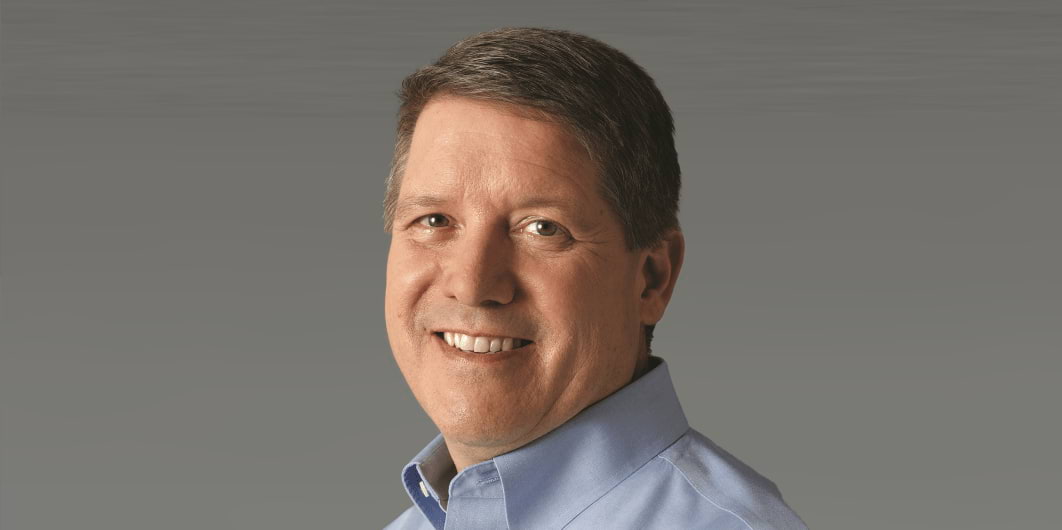
This kind of support in a family can be rare—especially from teenage children. And especially when dealing with a genetic condition like autosomal dominant polycystic kidney disease (ADPKD).
My mother didn’t tell any of her children about her ADPKD diagnosis until we were all grown, three years before she died from kidney failure because she decided not to go on kidney dialysis. I understand that she didn’t want to worry us, and that she didn’t want to have to ask for support from the people she supported. I vowed not to treat my own inherited ADPKD that way.
Although I was diagnosed at age 40, I felt healthy enough and made the choice to ignore the diagnosis. By 58, when my kidney function had dropped dramatically, I decided to make lifestyle changes and change my mindset. I decided that I wouldn’t let ADPKD stop me from doing the thing I had wanted to do my entire life. Plus, living with a chronic progressing disease, for me, meant seizing the opportunity at a time when I still felt relatively well and could manage the physical demands of a 3,500-mile ride.
Living with a chronic progressive illness in many ways had trained me to handle the mental demands of the ride—which are far more challenging than the physical exertion itself. When I was getting in shape for my ride, I took a different approach to my training than many bikers. Instead of seeing how fast and how long I could go, I challenged myself to see how long I could ride comfortably. I didn’t care how fast or slow I was—only that I could bike 100 miles and still feel good reaching the end. This mindset, and the care with which I approached my body felt important—both for the ride and for how I treat my ADPKD kidneys. After three years of training, I was ready.
My journey began on the west coast. My son drove the support van, just as he had promised. I would wake early in the morning and begin my ride. He would organize and pack up and find the next place to stay. When I arrived and parked my bike, he’d have dinner ready. We’d enjoy a relaxing evening talking and bonding and start it all over the next day. During that time, I also did a lot of interviews and speaking engagements to raise awareness for ADPKD in addition to raising money in support of ADPKD.
A ride like this is a once-in-a-lifetime endeavor and something I will never forget. But like the road of disease progression, there are speed bumps, detours, closed routes, and complications that come along with the beautiful scenery. I hit one such speed bump in Chicago when I fell and broke my arm. A broken bone put a pause on my ride—but it didn’t end things. The setback reminded me of when I started having physical symptoms with ADPKD. I gained weight because of my kidney growth and water retention, and managing my blood pressure became another speed bump. And along my ADKPD journey, I’ve had cysts burst and experienced a level of pain that is difficult to describe or imagine.
After the eight-week detour to heal my arm, I started again from Chicago, making my way to the east coast. My sister took over the vehicle at that time. She reminded me that support is all around me. And that no matter what might take me off the road, there is always someone there to help me get back on it.
I biked 900 miles over the next two weeks but just two days from the endpoint, I hit another roadblock. I’d been riding with a fever for two days when I couldn’t go another mile. I tested positive for COVID-19 and had to go home before the last 200 miles. My family quarantined me and supported me while I recovered. I may have been home in my bed—but mentally—the ride was not over.
One thing I know is that a journey with a chronic illness like ADPKD requires grit. Commitment. Staying the course. Returning after a setback. Overcoming obstacles. And surrounding yourself with love and support.
I’ve faced obstacles with ADPKD, and I never let them stop me. I persist. I move forward. I learn and educate myself. I talk to my healthcare team and do the best I can. Months later, I went back to the bike, determined to complete my ride. I picked up right where I left off and even though I’m proud to say I finished the journey, life is not about the destination—it’s about the trip itself.
Since there’s no cure for ADPKD, I am educating my kids, my family, and anyone who will listen about my journey. My parents never did that for me. I’m lucky that we talk about it now and aren’t afraid to show up and share.
I approached my biking trip the same way I approach my ADPKD. One day at a time—with a focus on each day. ADPKD hasn’t stopped me from doing the things I love. In fact, it has done the opposite. It has inspired me to go after the things I want in life and live each day to the fullest.
Patients were compensated for their time. Patient images reflect their health status at the time the photos and videos were taken.
Receive helpful texts and
emails with information to support conversations with your nephrologist
and healthcare team.
Speak one-on-one with
a Peer Mentor living with
rapidly progressing ADPKD
and taking JYNARQUE.
Sign up for an ADPKD
Peer Conversations webinar
to talk with people living
with ADPKD.


Morgan is living with rapidly progressing autosomal dominant polycystic kidney disease, or ADPKD, and taking JYNARQUE.
Please remember that none of the information discussed in this article should replace the conversations with your healthcare provider. Morgan is sharing her own thoughts and experiences, so please keep that in mind, as your thoughts and experiences may be different.
Hello. My name is Morgan, and when I was 22 years old, I was diagnosed with rapidly progressing autosomal dominant polycystic kidney disease, or ADPKD; an aggressive disease that would have a significant impact on my life. I didn’t know what this would mean for my future. My main question for the nephrologist was: “Is there a cure?” He told me no. “Whether we remove them or drain them,” he said, “the cysts on your kidney will continue to multiply and grow, causing your kidneys to enlarge and slow down your kidney function.” The only thing I could do was try to slow the progression of the disease. I remember telling myself, Okay, I'm gonna be diligent about it. I'm gonna make sure I do everything, and we'll see what happens.
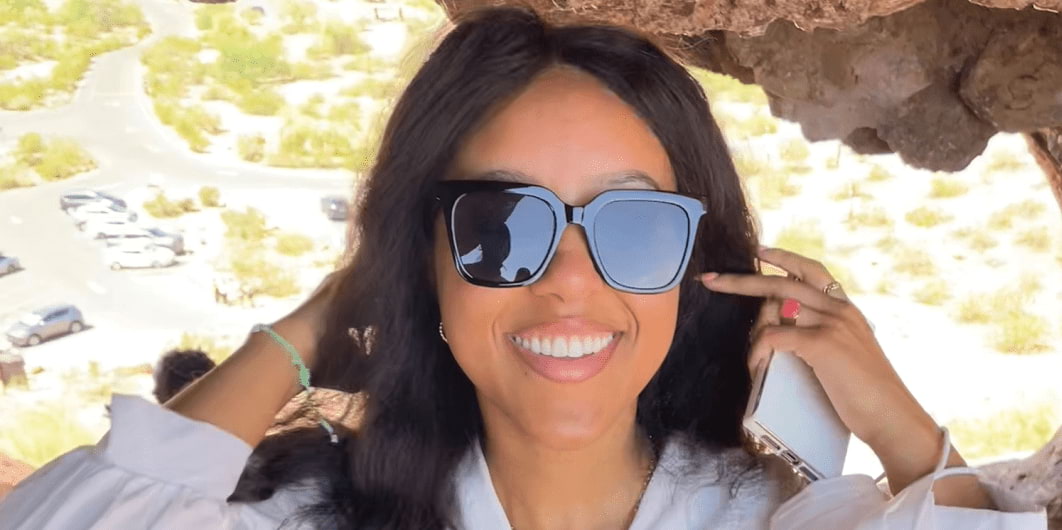
“the cysts on your kidney will continue to multiply and grow, causing your kidneys to enlarge and slow down your kidney function.” The only thing I could do was try to slow the progression of the disease. I remember telling myself, Okay, I'm gonna be diligent about it. I'm gonna make sure I do everything, and we'll see what happens.
My nephrologist told me about JYNARQUE® (tolvaptan), a prescription medicine and the only FDA-approved treatment proven to slow kidney function decline in adults who are at risk of rapidly progressing ADPKD, which gave me hope. As part of the treatment protocol, he explained that I would need to enroll in the JYNARQUE Risk Evaluation and Mitigation Strategy program, which allows for my medical team to monitor my liver, as this powerful medication can potentially cause liver damage. He also explained the common side effects, such as thirst, increased fluid intake, making large amounts of urine, urinating often, and urinating at night.
After I had my lab work done, I received my first prescription from the specialty pharmacy. Otsuka (the company who manufactures JYNARQUE) sent me a Welcome Kit, which included a lot of information about JYNARQUE and what to expect. Having that nice little starter pack made me feel ready to take on the task of beginning this new lifestyle—a significant step in my ADPKD journey—and so it was very comforting to me. The kit also included a water bottle that I still use to this day—I take it everywhere!
Since being on JYNARQUE I have made some lifestyle changes, such as having a handy bathroom finder app on my phone. While taking this medication I have experienced increased thirst, and to avoid becoming dehydrated I drink a lot of water! It is important to drink a lot of water while taking this medication and, as you can expect, I have experienced frequent urination, so I try to plan around that. For example, I take my first dose of JYNARQUE when I first wake up and my second dose eight hours later.
As time continued on, I didn’t feel anxious. I didn’t feel scared. I didn’t feel the determination to break free from the disease. You know how I felt after all that time? Invincible.
You might think, How can you feel invincible after realizing your disease won’t go away? The definition of invincible is “something that is too powerful to be defeated or overcome.” Before my diagnosis, I really wasn’t invincible. Out of fear, my mindset was to get rid of the disease. But knowing I’m doing everything I can to help keep my ADPKD from progressing quickly, by means of my treatment, testing, doctor visits, and comfort from my family and friends—it all gave me power. And as a result, I feel ADPKD won’t defeat my emotions or my happiness in life. I won’t let it. I won’t let it overcome my life. Now that I’ve come to terms with the fact that this disease is here to stay, and I’m aware, educated, and taking control of my health, no matter what the results are, I can say I really do feel invincible.
Patients were compensated for their time. Patient images reflect their health status at the time the photos and videos were taken.
Receive helpful texts and
emails with information to support conversations with your nephrologist
and healthcare team.
Speak one-on-one with
a Peer Mentor living with
rapidly progressing ADPKD
and taking JYNARQUE.
Sign up for an ADPKD
Peer Conversations webinar
to talk with people living
with ADPKD.


Teaching Our Children to
Advocate for Their Health
Cari is living with rapidly progressing autosomal dominant polycystic kidney disease, or ADPKD, and taking JYNARQUE.
Please remember that none of the information discussed in this article should replace the conversations with your healthcare provider. Cari is sharing her own thoughts and experiences, so please keep that in mind, as your thoughts and experiences may be different.
It’s hard to think about my journey as a patient with autosomal dominant polycystic kidney disease (ADPKD) and not think of my dad. Growing up, I watched him undergo hemodialysis treatments in our living room, receive a kidney transplant, and live out the challenges that came along with transplant medication and other health issues until he passed away. As a child, and even a young
It’s hard to think about my journey as a patient with autosomal dominant polycystic kidney disease (ADPKD) and not think of my dad. Growing up, I watched him undergo hemodialysis treatments in our living room, receive a kidney transplant, and live out the challenges that came along with transplant medication and other health issues until he passed away. As a child, and even a young adult, I didn’t know that living through that trauma would one day have a profound impact on who I would become as an adult. I didn’t know it was helping me to become the person I am today—someone with drive and a commitment to advocacy and awareness of ADPKD.
I was diagnosed with ADPKD at just 10 years old. My parents waited until I was 18, and better equipped to handle the enormity of that information, to tell me about my diagnosis. When I became a parent myself, I understood the difficult position my parents found themselves in during a time when pre-existing conditions meant the potential for discrimination and along with it, fear. As a mom to three daughters, I believe one of our greatest responsibilities as parents is to not only guide our children, but to empower them to navigate through life’s challenges. Being in a family with ADPKD means this responsibility takes on a whole new dimension. It means having an open conversation with your child about their potential to inherit a disease they have seen their parent or grandparent struggle with.
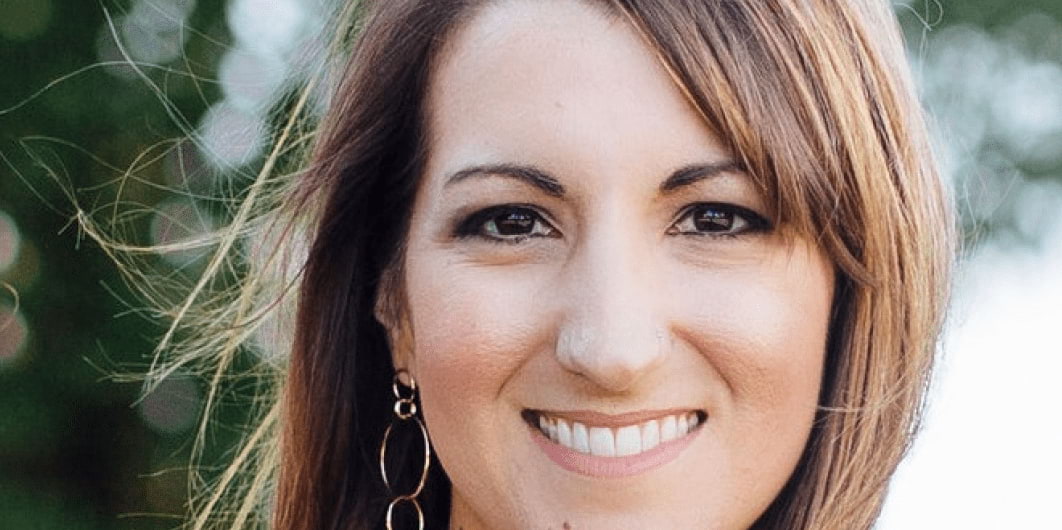
adult, I didn’t know that living through that trauma would one day have a profound impact on who I would become as an adult. I didn’t know it was helping me to become the person I am today—someone with drive and a commitment to advocacy and awareness of ADPKD.
I was diagnosed with ADPKD at just 10 years old. My parents waited until I was 18, and better equipped to handle the enormity of that information, to tell me about my diagnosis. When I became a parent myself, I understood the difficult position my parents found themselves in during a time when pre-existing conditions meant the potential for discrimination and along with it, fear. As a mom to three daughters, I believe one of our greatest responsibilities as parents is to not only guide our children, but to empower them to navigate through life’s challenges. Being in a family with ADPKD means this responsibility takes on a whole new dimension. It means having an open conversation with your child about their potential to inherit a disease they have seen their parent or grandparent struggle with.
As both a parent and a patient with ADPKD, I’ve learned that when it comes to our kids, early awareness, education, and understanding are what can lead to early detection. For my children, it was important for me to educate them about the possibility of ADPKD so that if they started to have symptoms, they would know who to talk to. I’ve encouraged them to learn what they can about this condition, but I’ve also given them the freedom to make their own choices regarding their health, and find out on their terms, at a time right for them. It was heartbreaking when my oldest daughter was diagnosed at the age of 21 while experiencing high blood pressure symptoms at college. But she was equipped with the knowledge of what to do and who to call.
When I think about the way my children have experienced ADPKD, I realize just how different it is from my own experience. I watched my dad suffer for years from this condition, but thankfully my symptoms aren’t as severe. So, instead of the conversation about ADPKD being out of necessity because they have seen me sick, the conversation is driven by them as witnesses to their mom being a hard-working advocate for those impacted by this disease.
Because ADPKD is hereditary, many people know about the condition before they have symptoms, which may help them get an earlier diagnosis. Some, however, might not be aware of their family history and by the time they experience symptoms or see a doctor for a diagnosis, their condition has progressed further than it might have with earlier detection. For this reason, I speak up and share my story with anyone who is gracious enough to listen. I encourage those I talk with to become educated about ADPKD and to begin inviting their close circles of friends, family, and co-workers into the conversation. I devote volunteer time to kidney patient advocacy committees, participate in online communities, advocate for legislative changes at the federal and state government levels, and I use my background in IT to help national kidney patient organizations create online patient registries. I’ve also participated as an ADPKD Ambassador where I’ve been able to connect with others through the ADPKD Peer Conversations Webinars and the ADPKD Peer Connections Mentor calls.
Throughout my journey, I’ve learned how important it is to use life experiences to make a difference. As my children learn about this disease, I hope they aren’t afraid. Instead, it’s my hope that by watching their mom tackle ADPKD from a position of strength that they too will face any potential diagnosis of their own head-on. One day, I’d love to see them harness the power of advocacy and awareness, so they can see firsthand how rewarding it is to use our experiences to help others and remind ourselves that we don’t experience anything in this life that can’t be used to make a difference.
Patients were compensated for their time. Patient images reflect their health status at the time the photos and videos were taken.
Receive helpful texts and
emails with information to support conversations with your nephrologist
and healthcare team.
Speak one-on-one with
a Peer Mentor living with
rapidly progressing ADPKD
and taking JYNARQUE.
Sign up for an ADPKD
Peer Conversations webinar
to talk with people living
with ADPKD.
Receive helpful texts and
emails with information to support conversations with your nephrologist
and healthcare team.
Speak one-on-one with
a Peer Mentor living with
rapidly progressing ADPKD
and taking JYNARQUE.
Sign up for an ADPKD
Peer Conversations webinar
to talk with people living
with ADPKD.